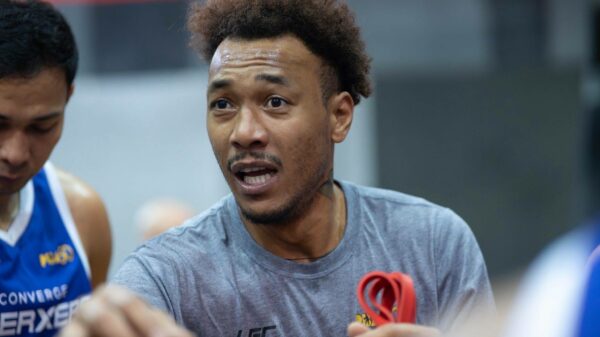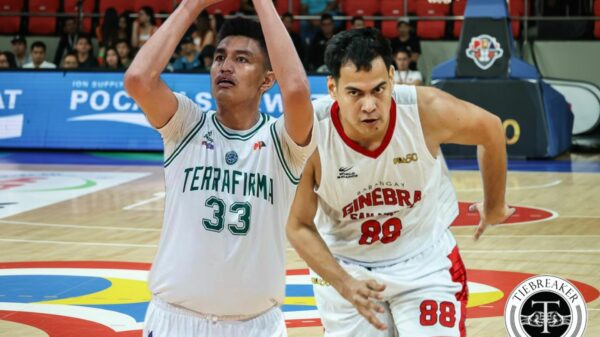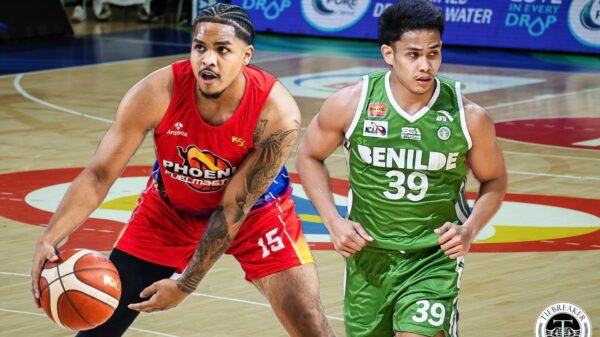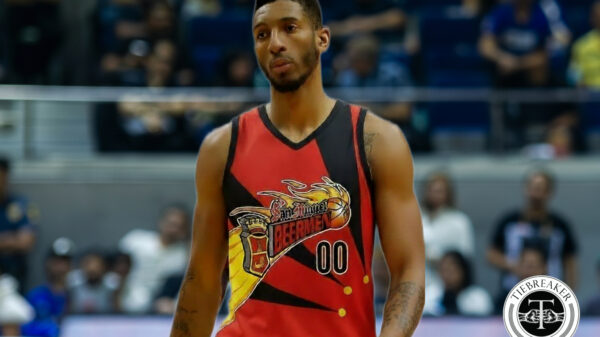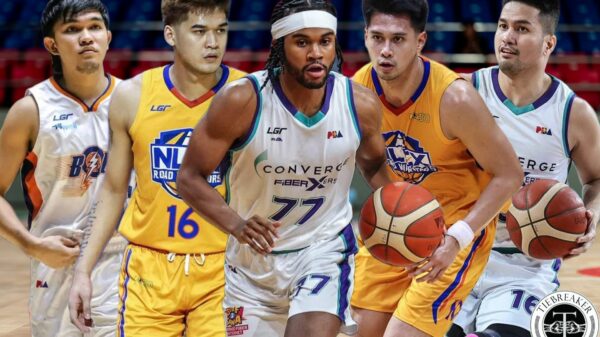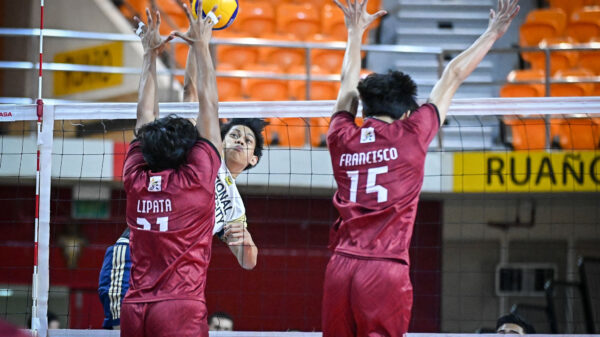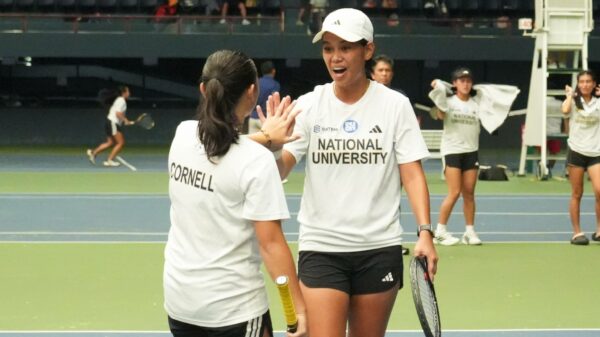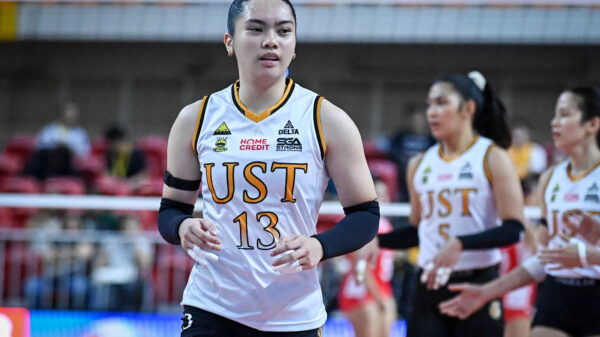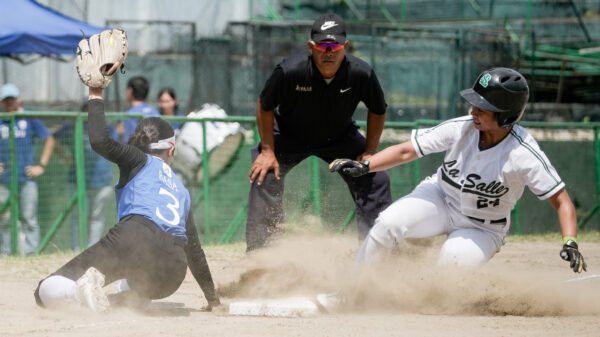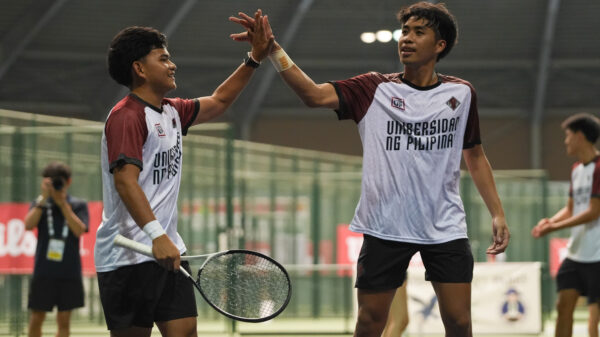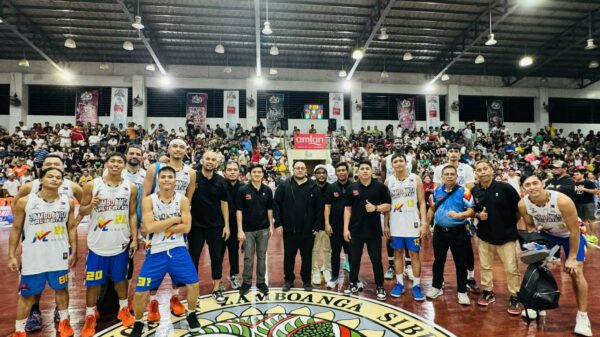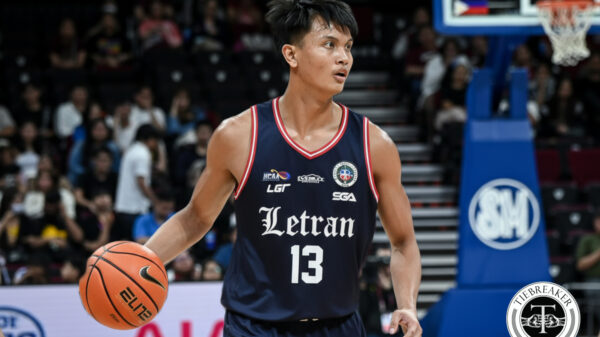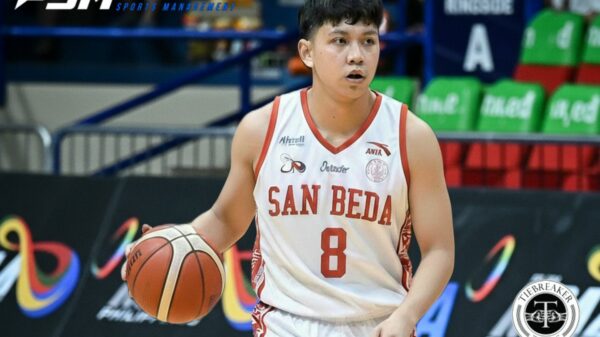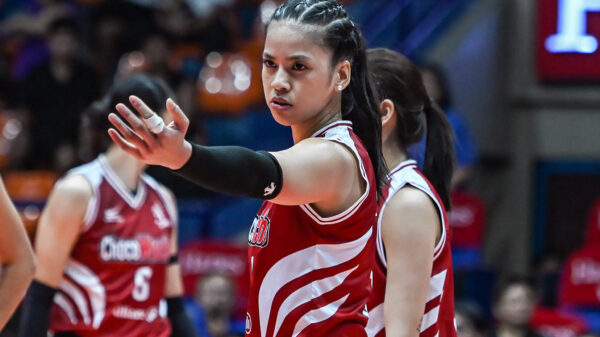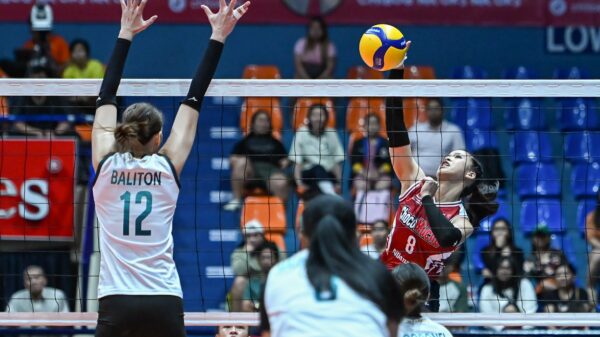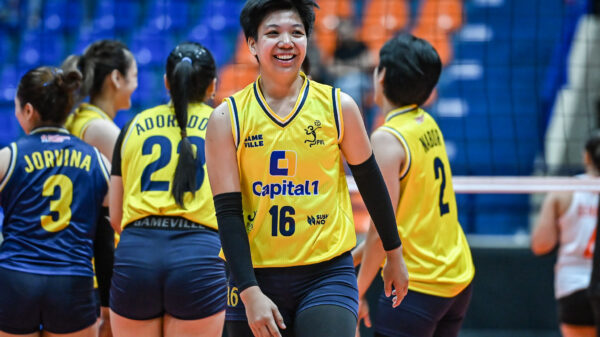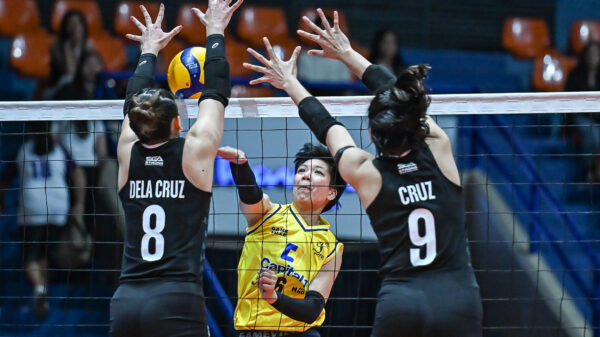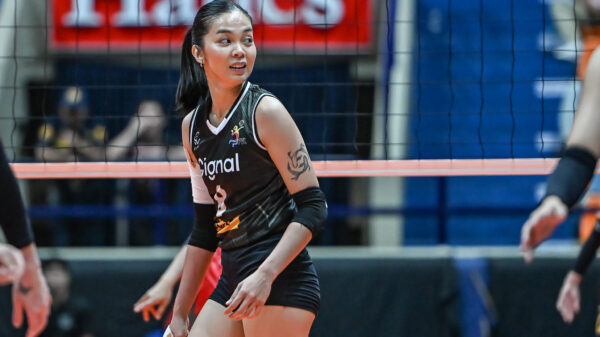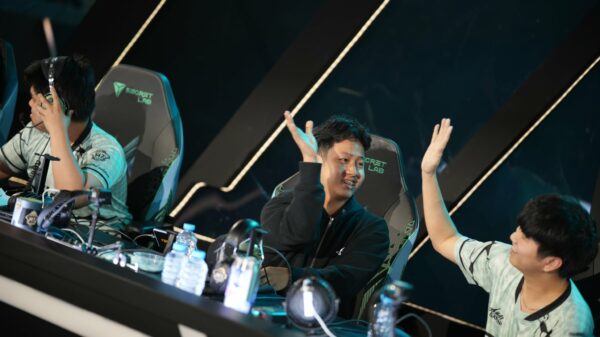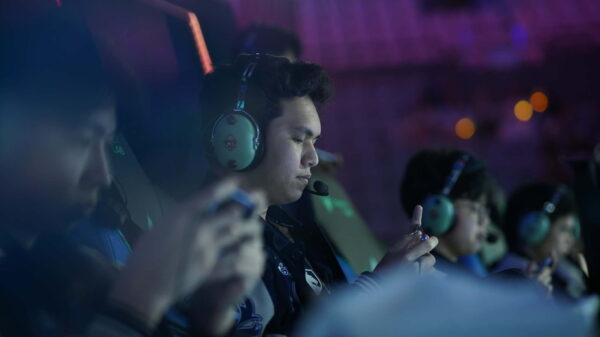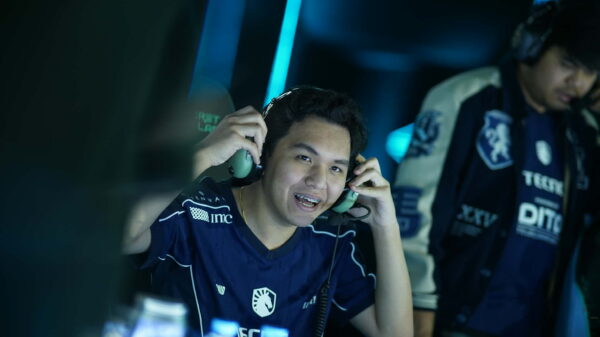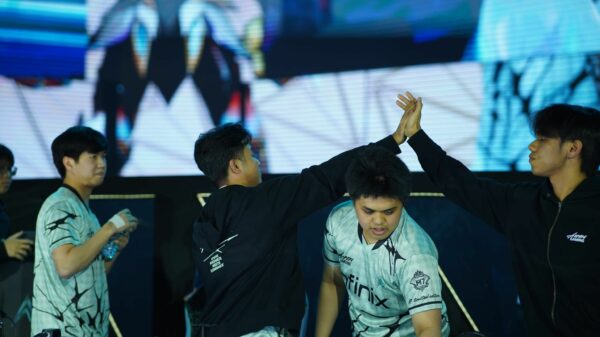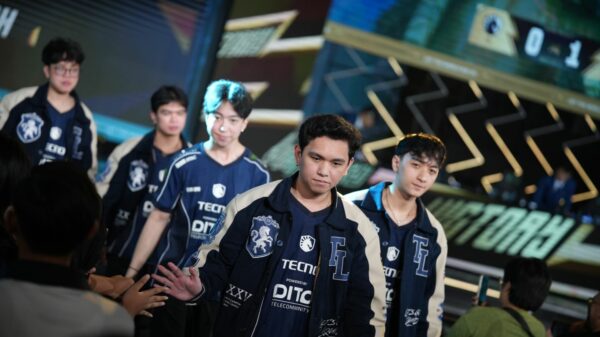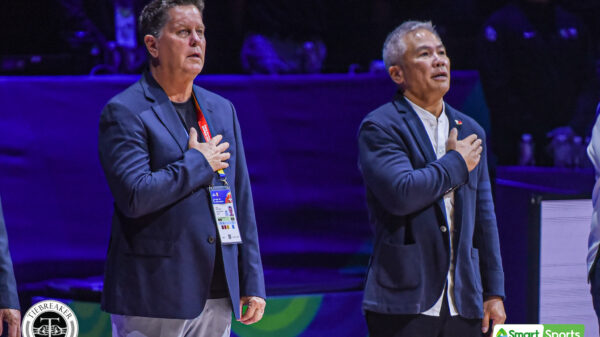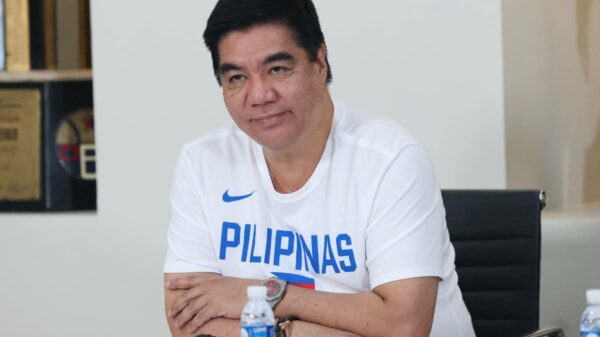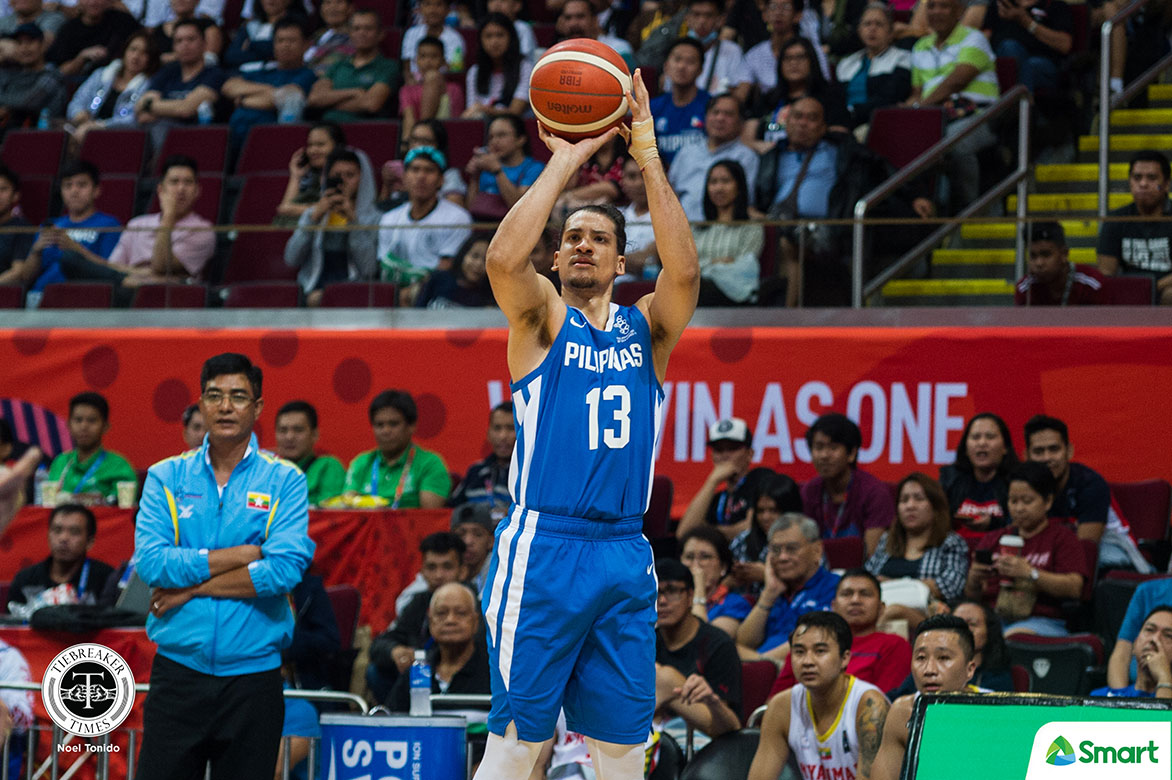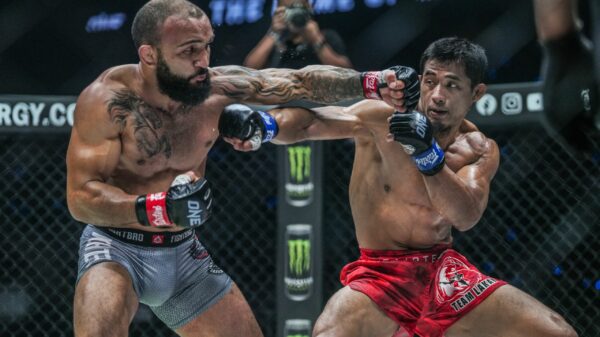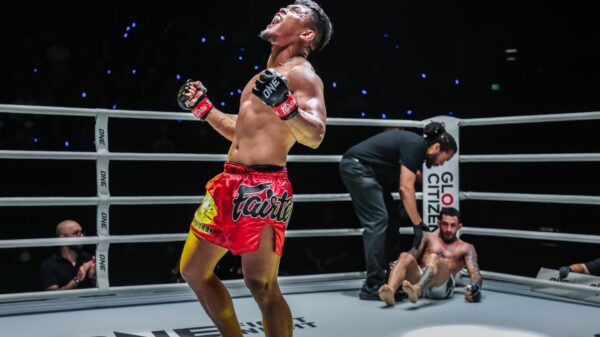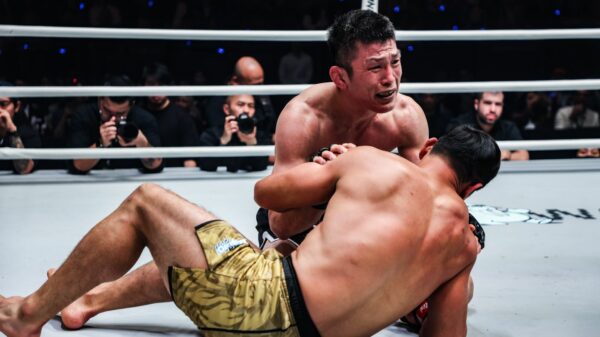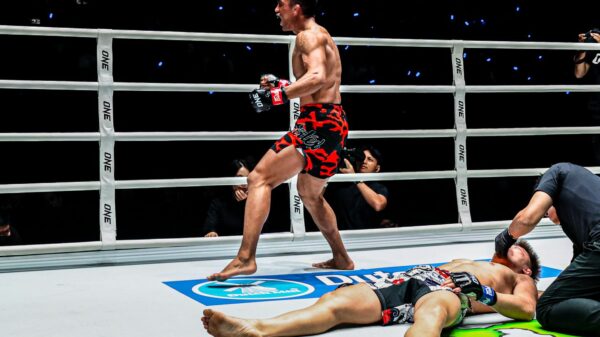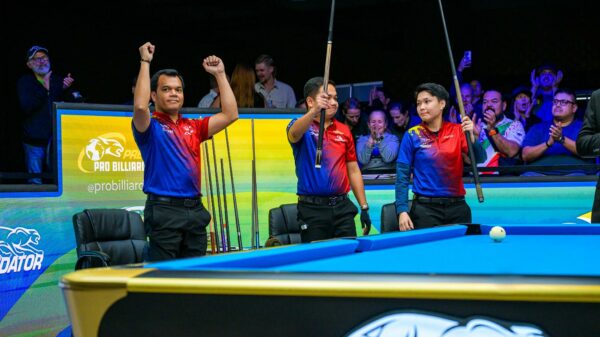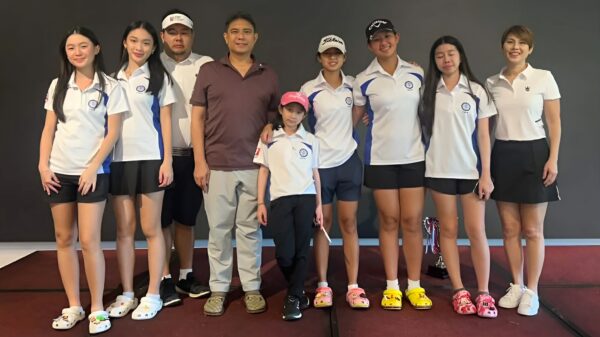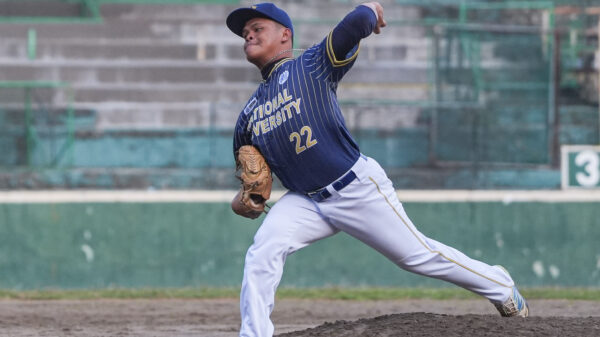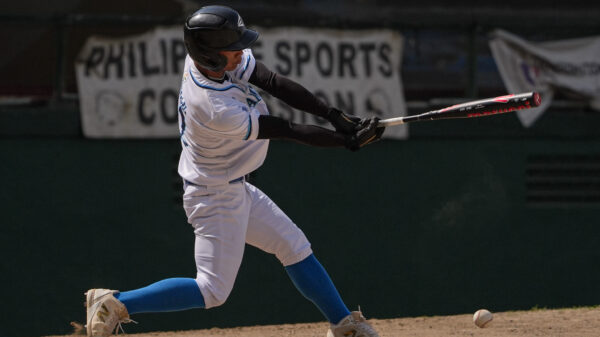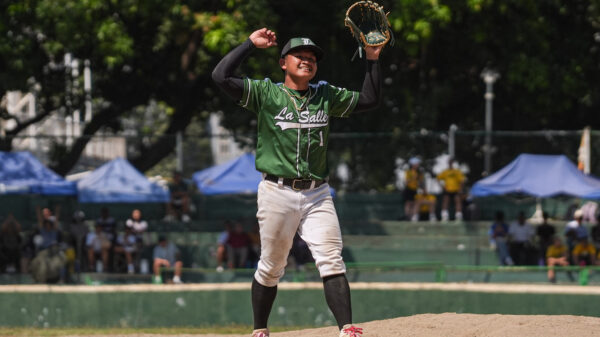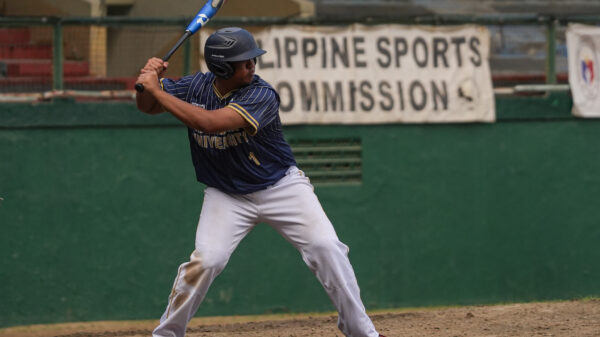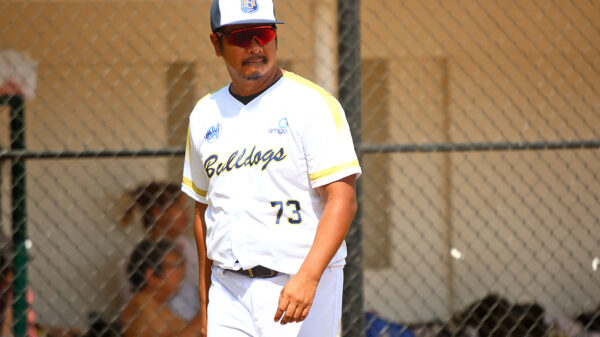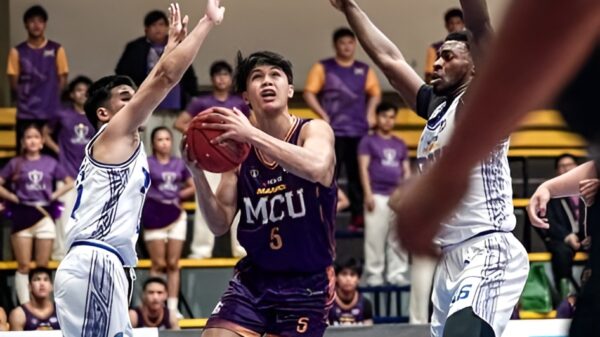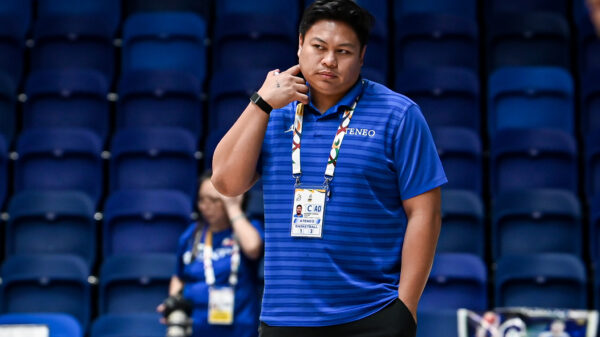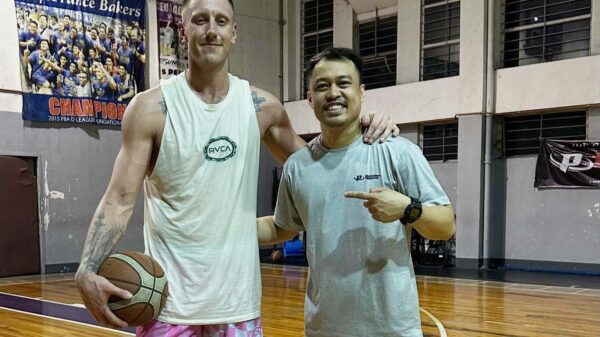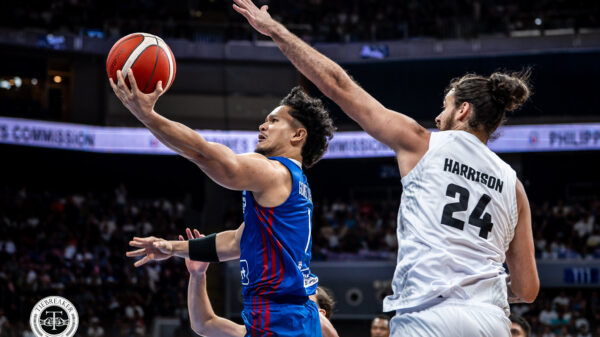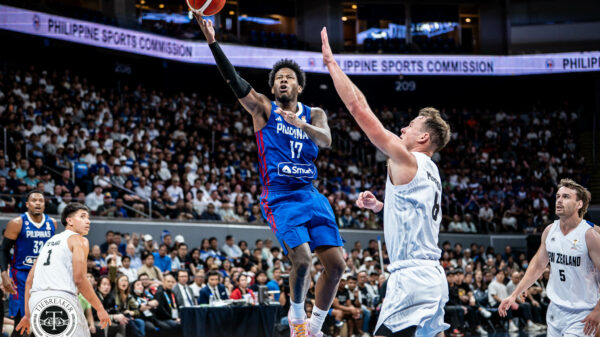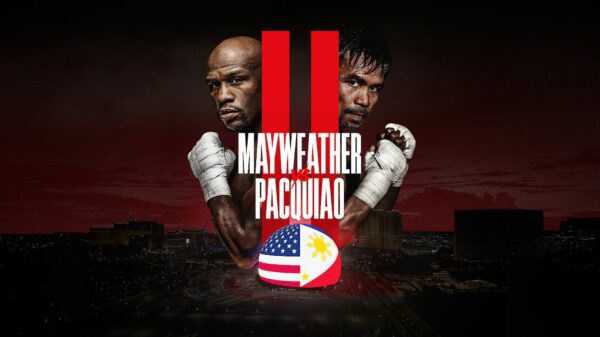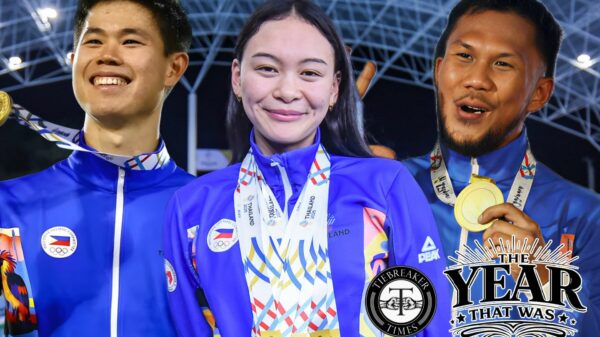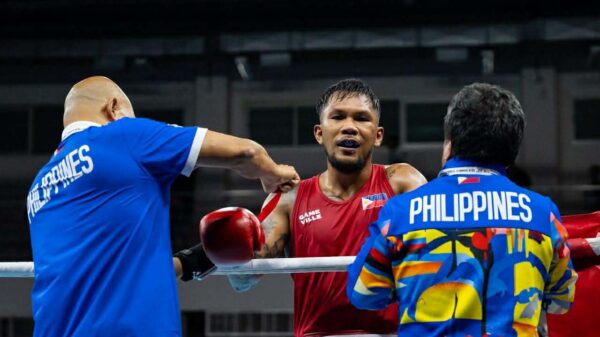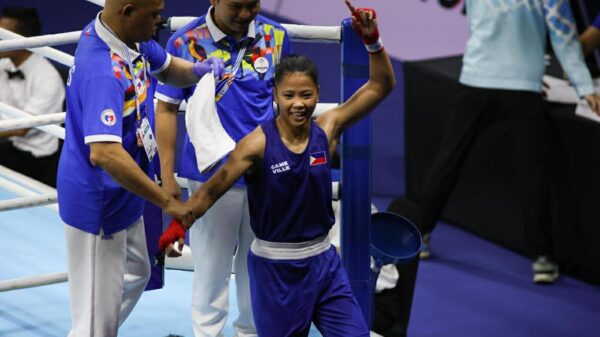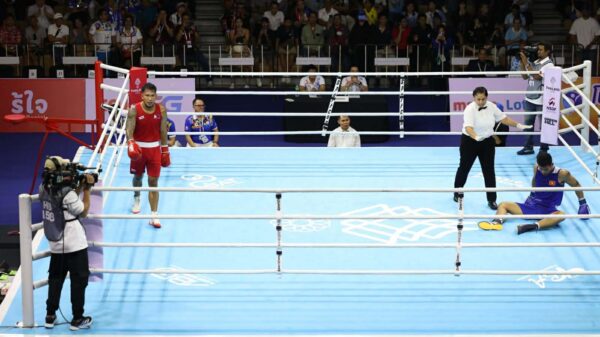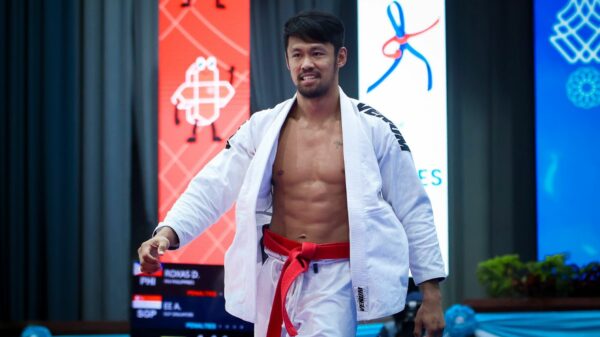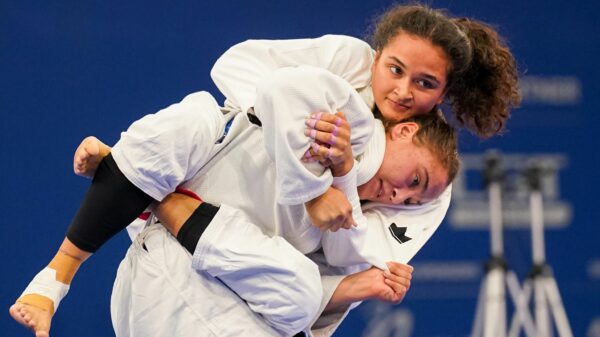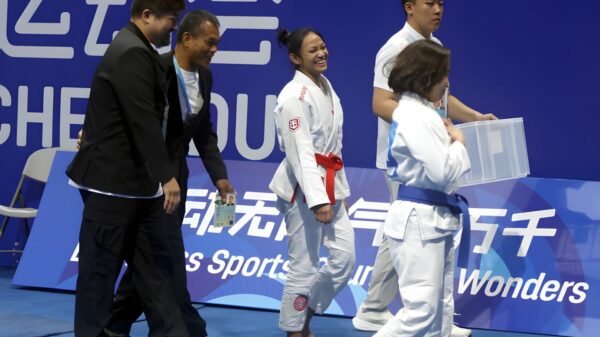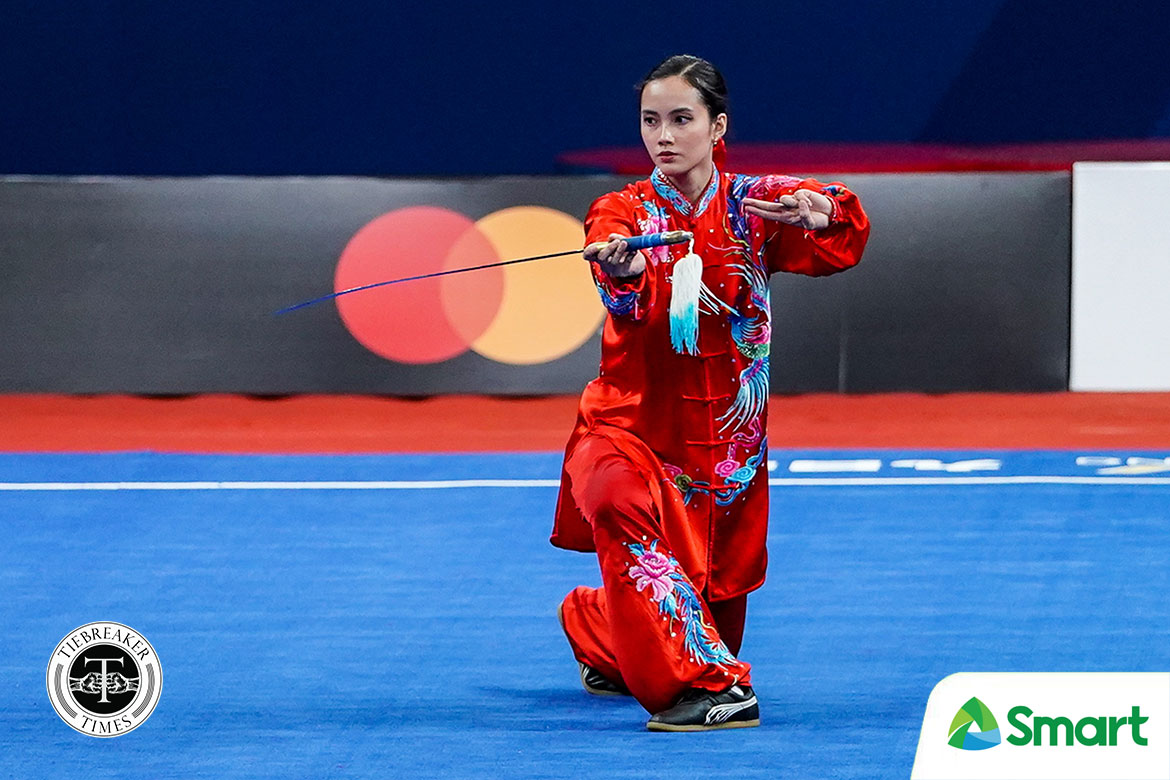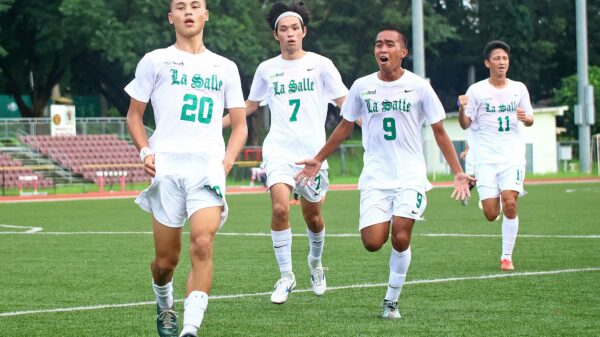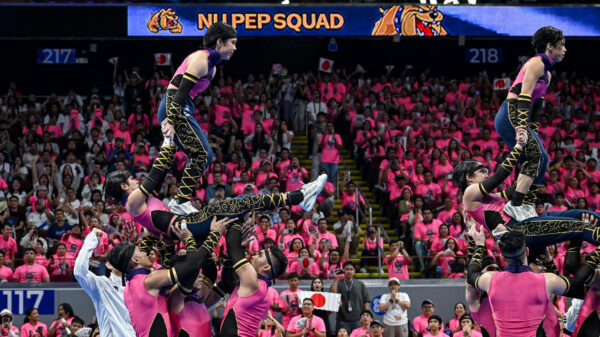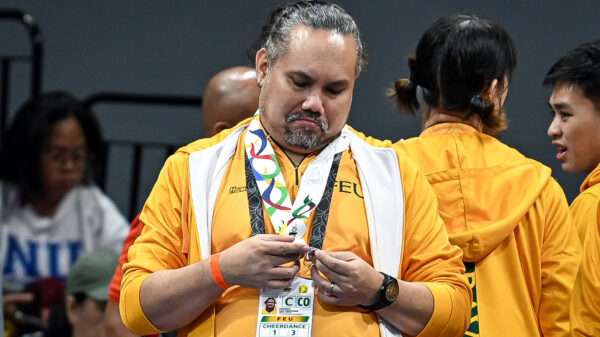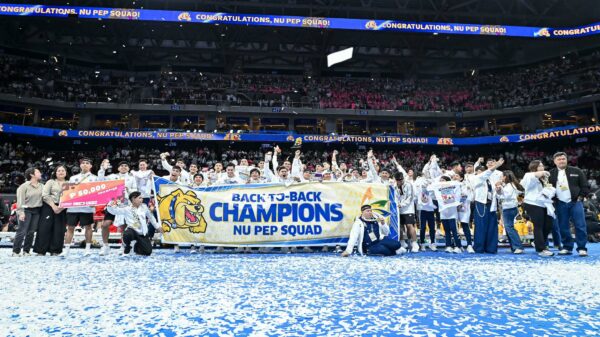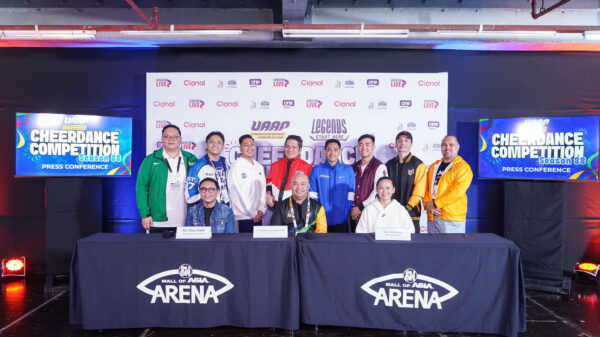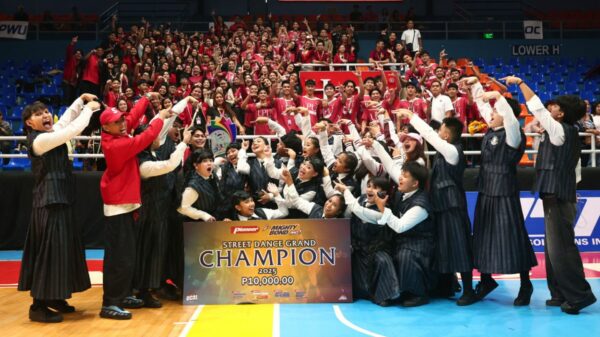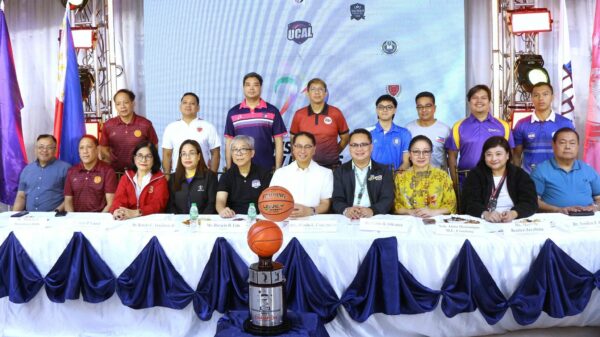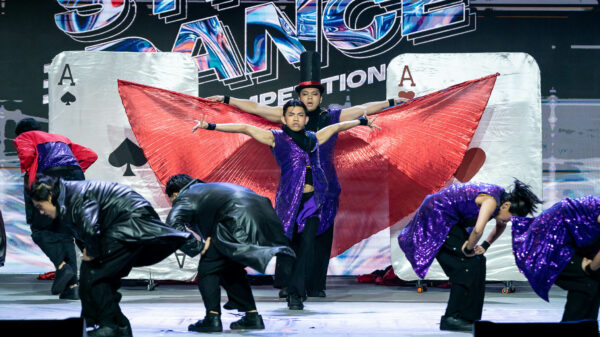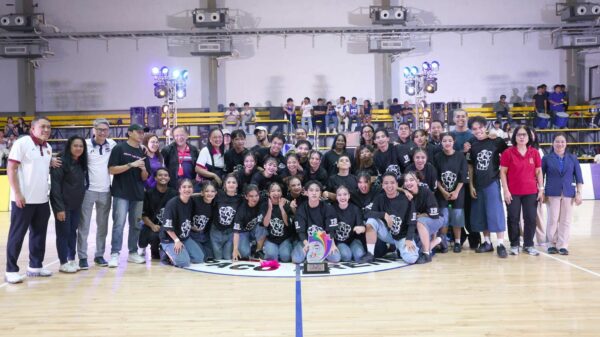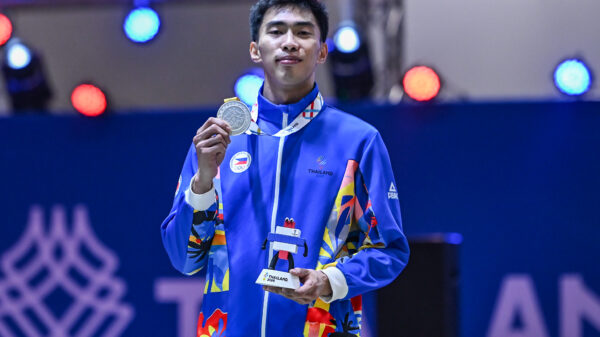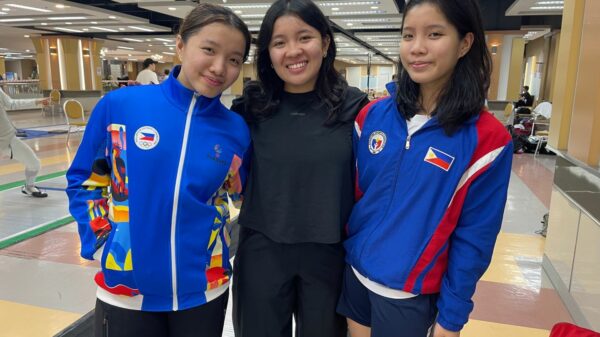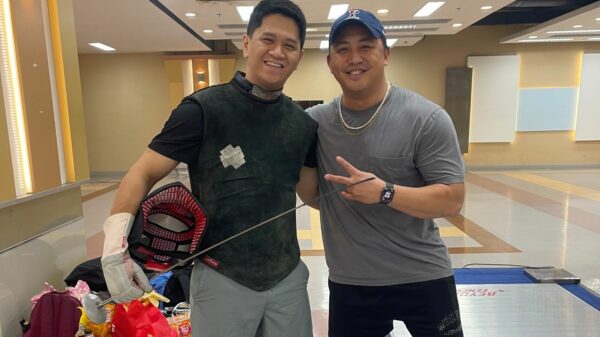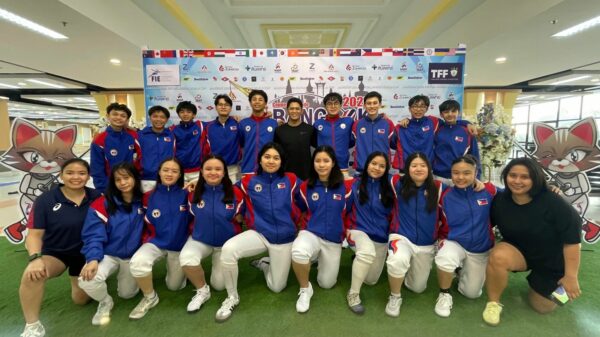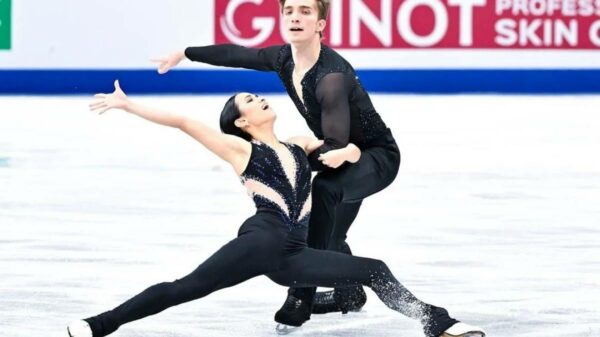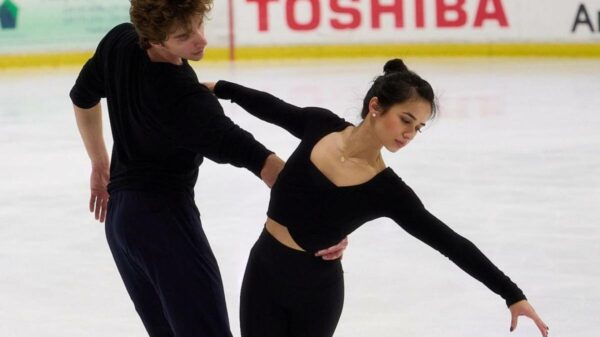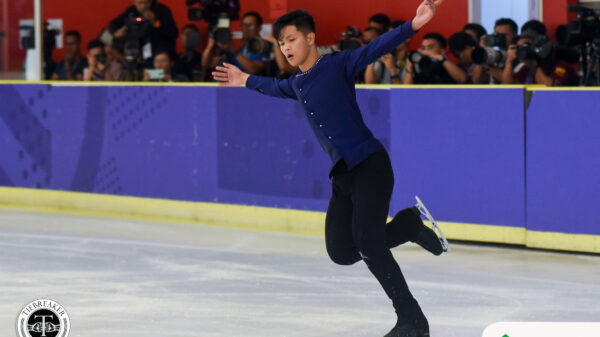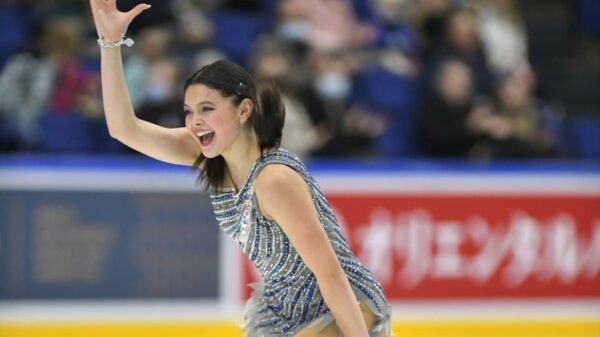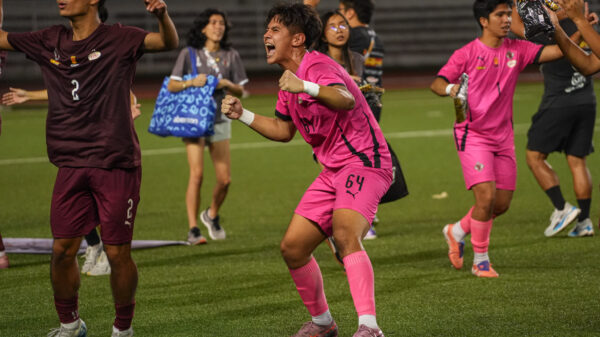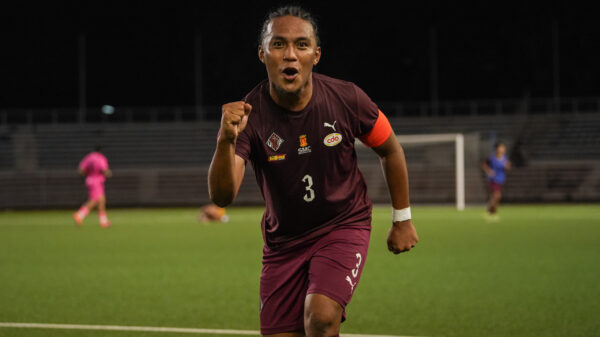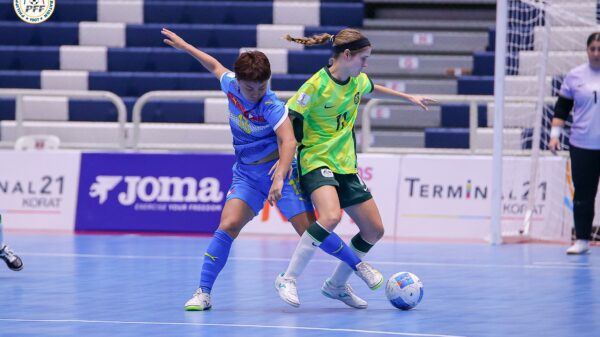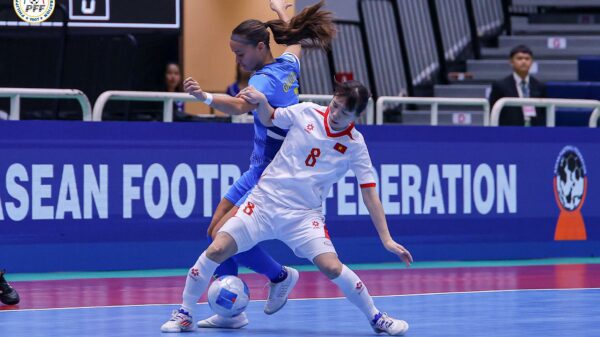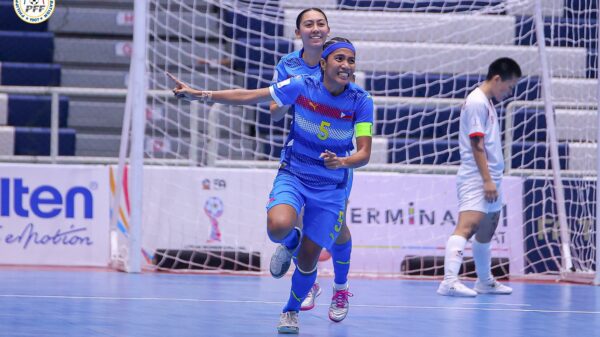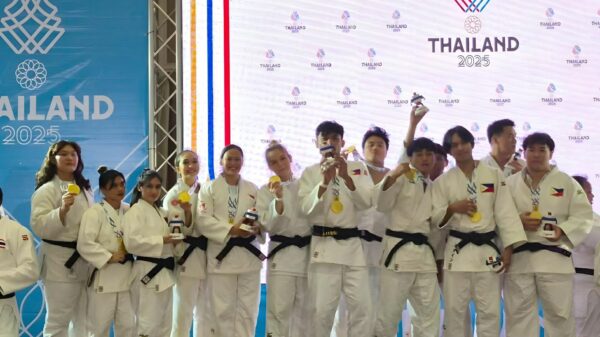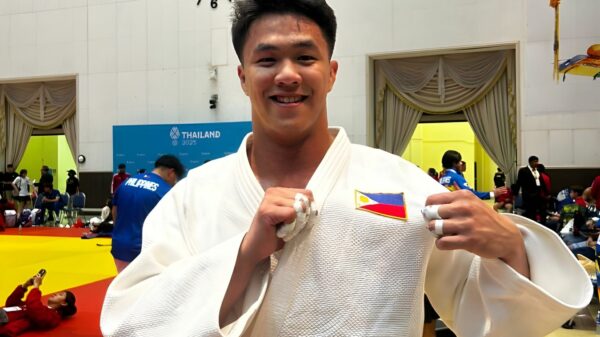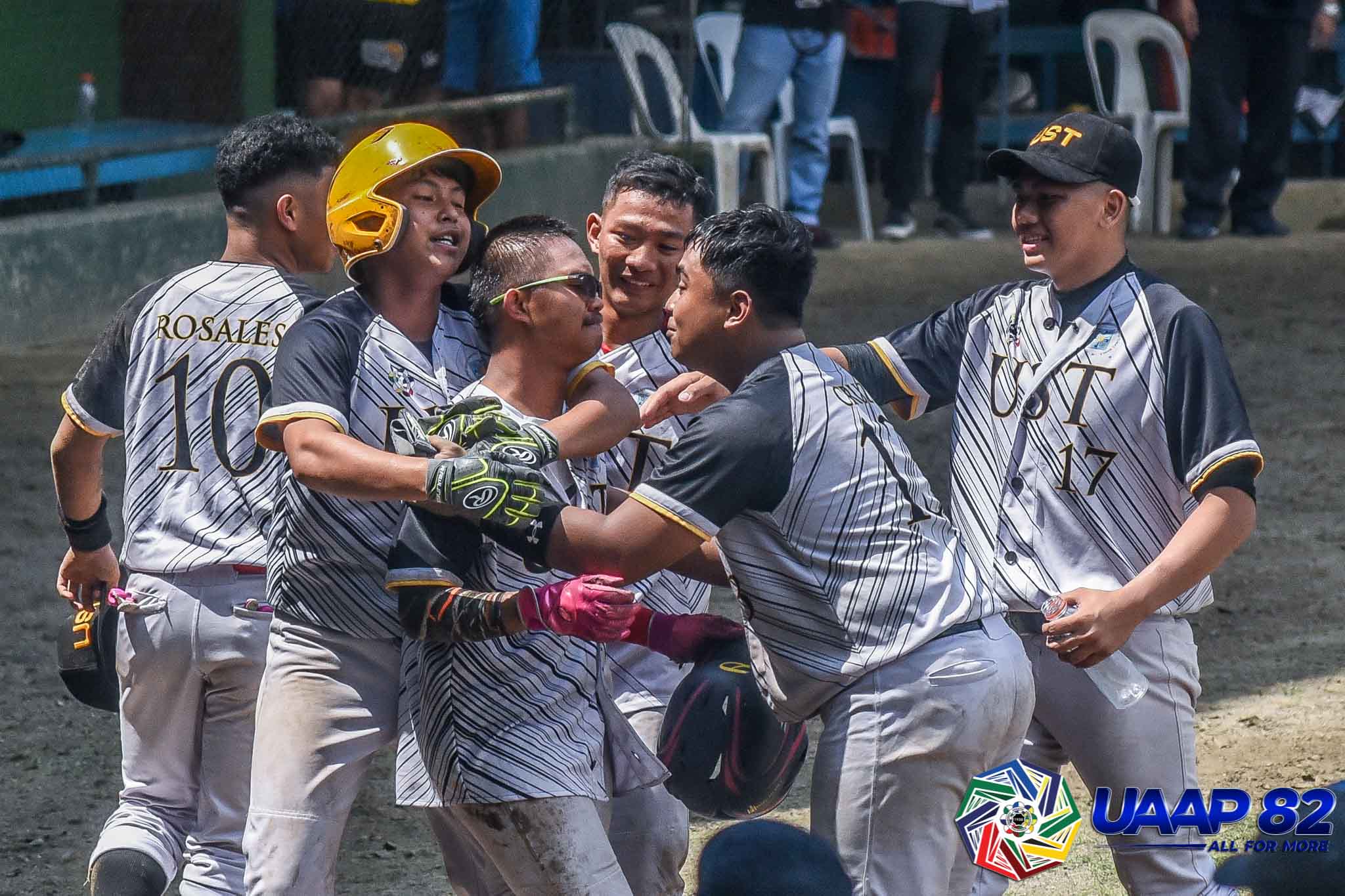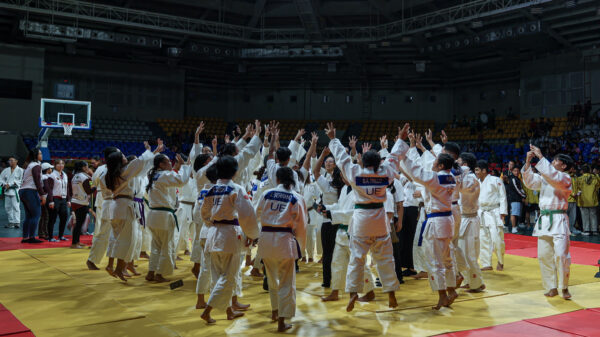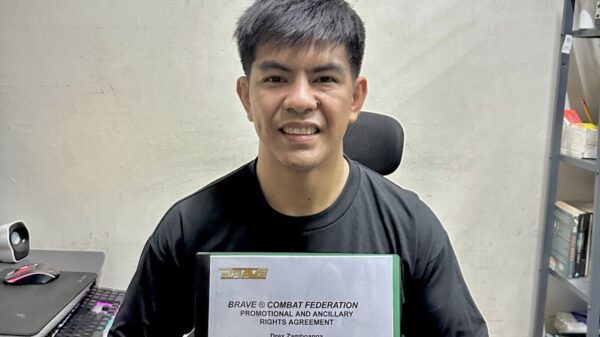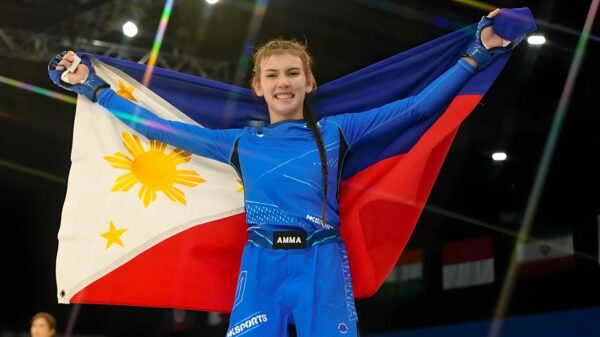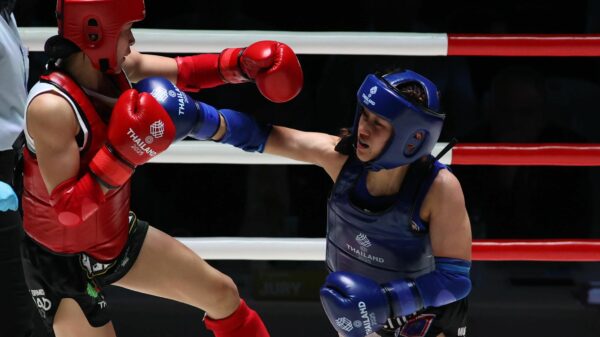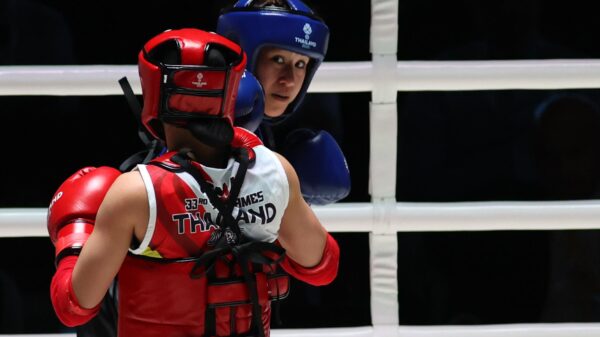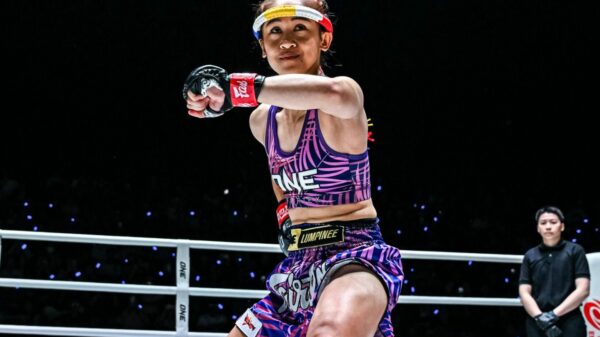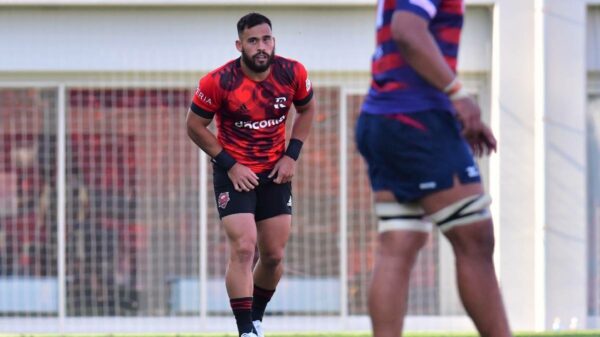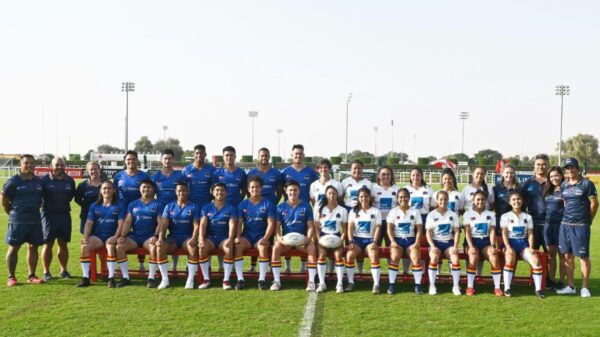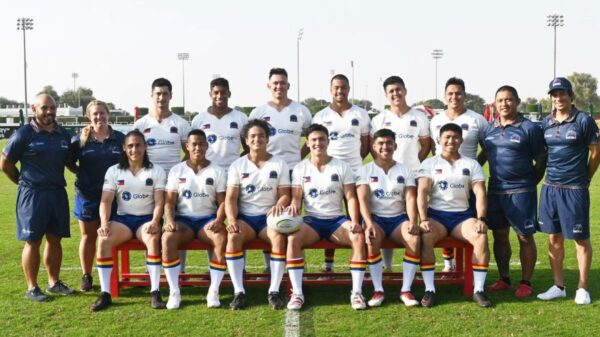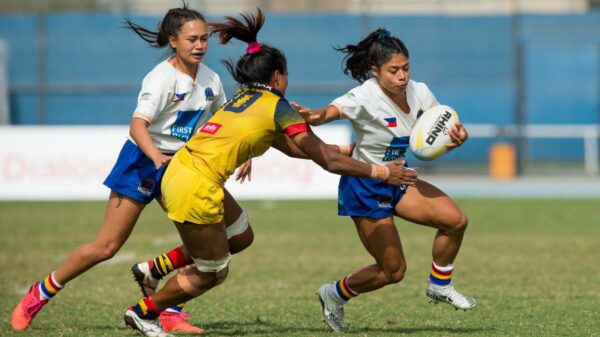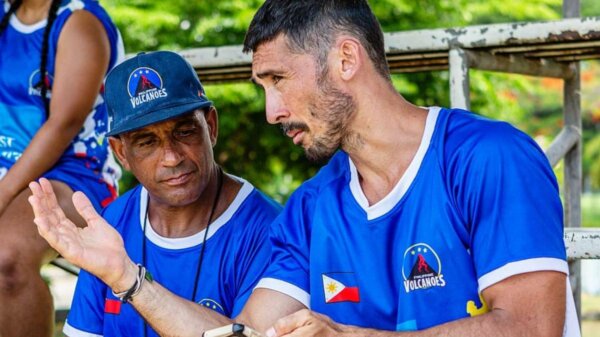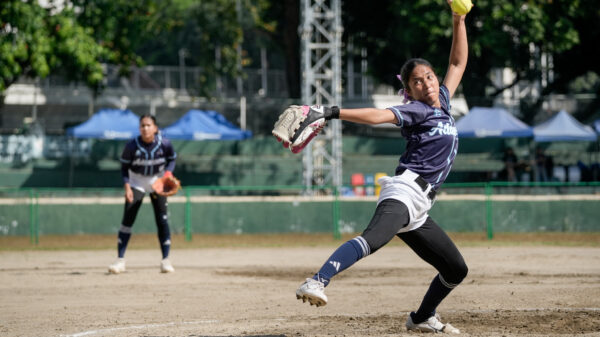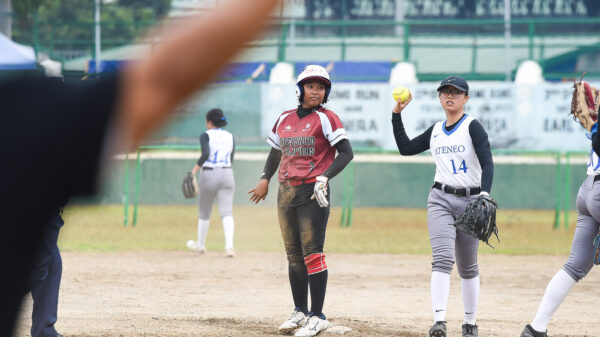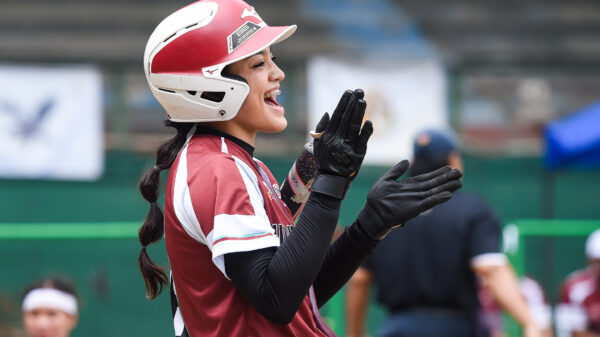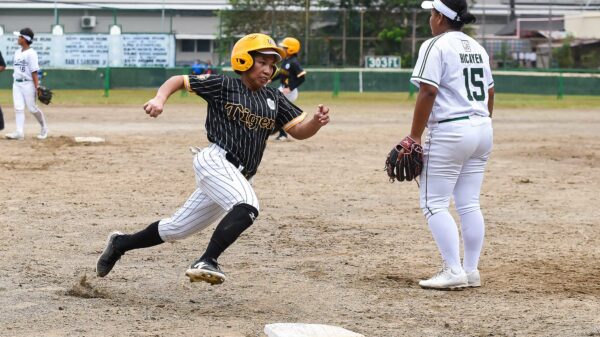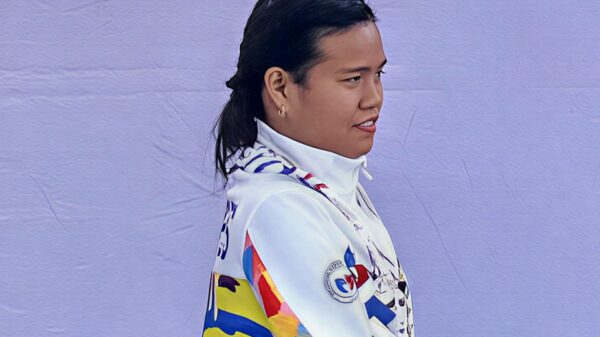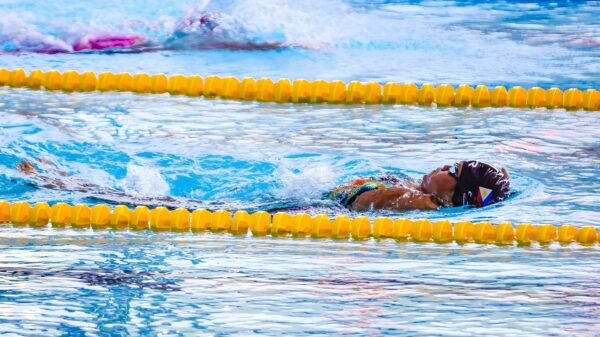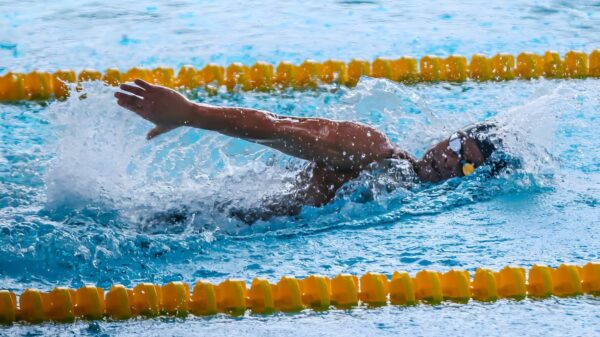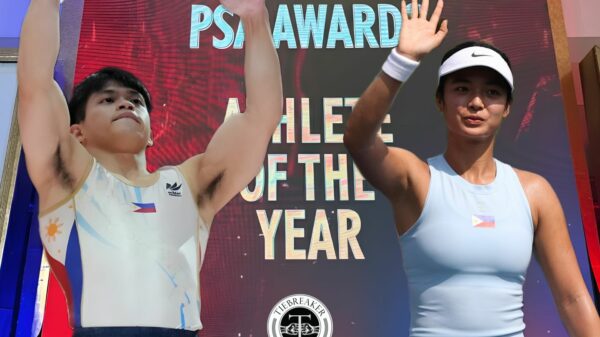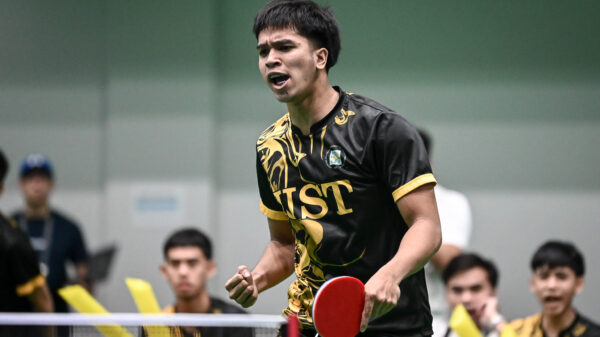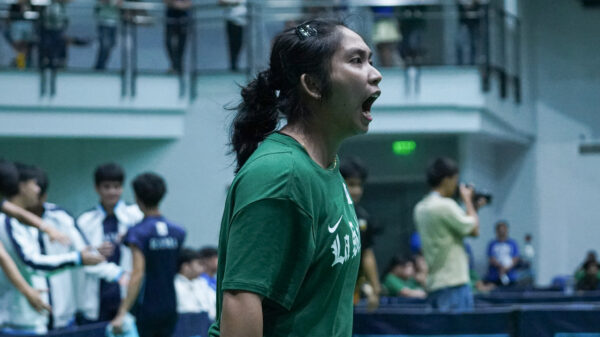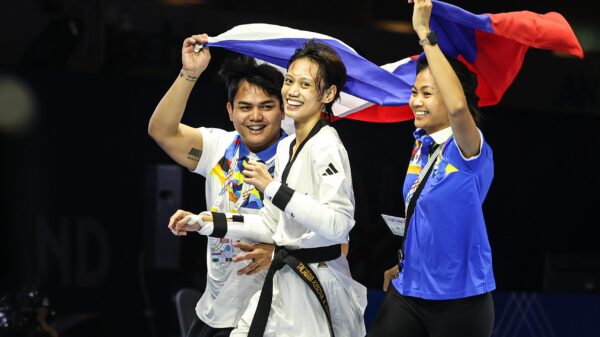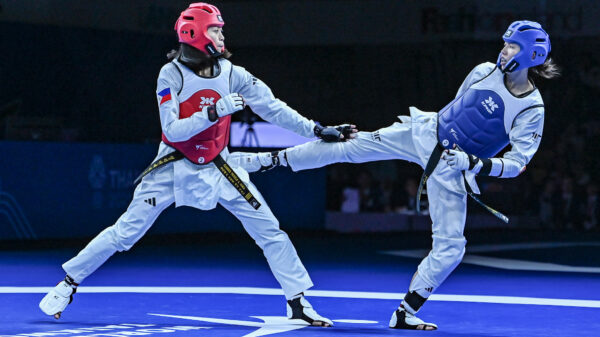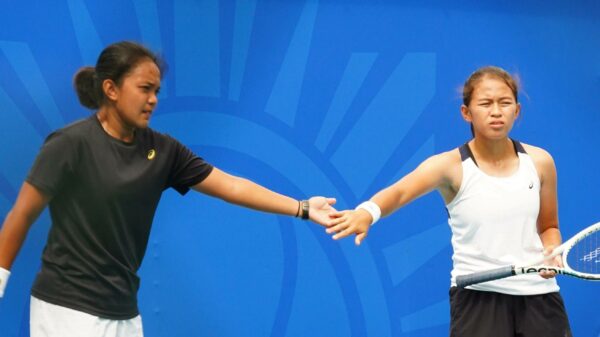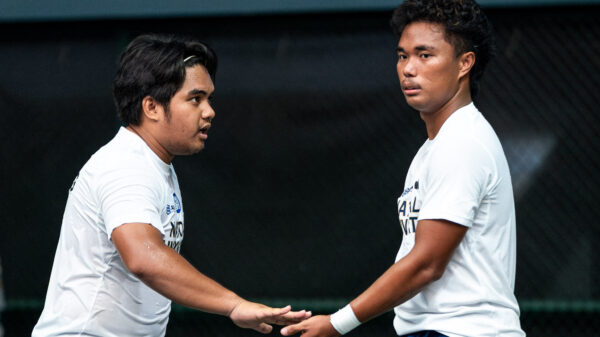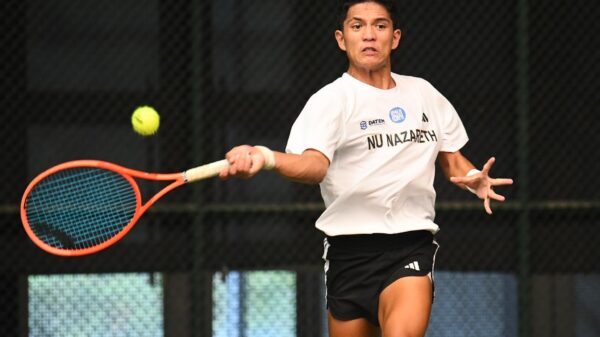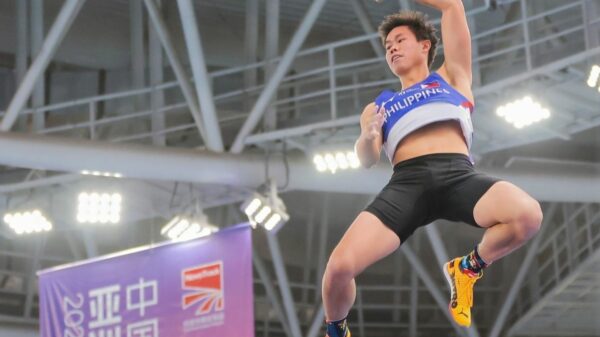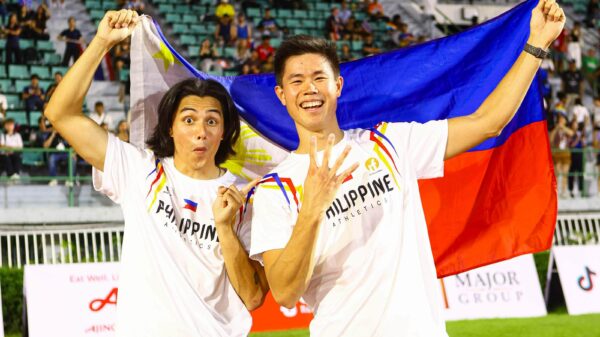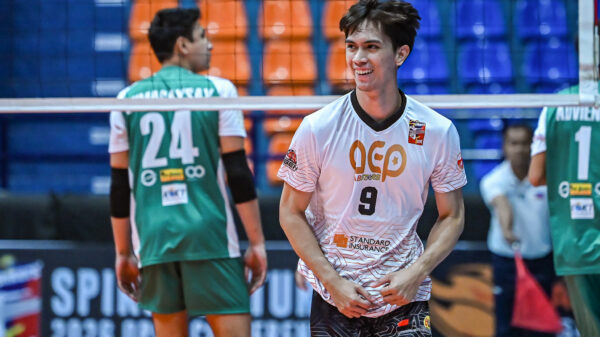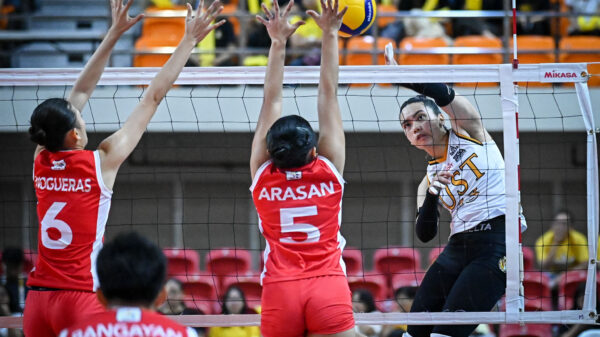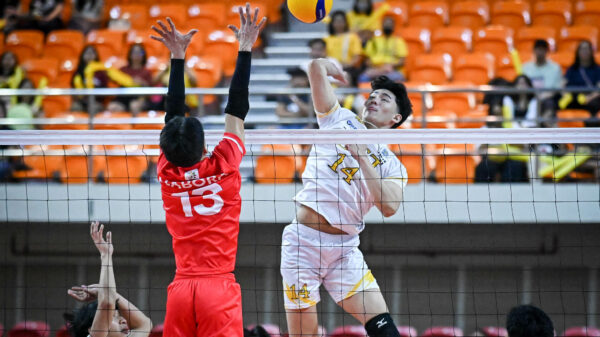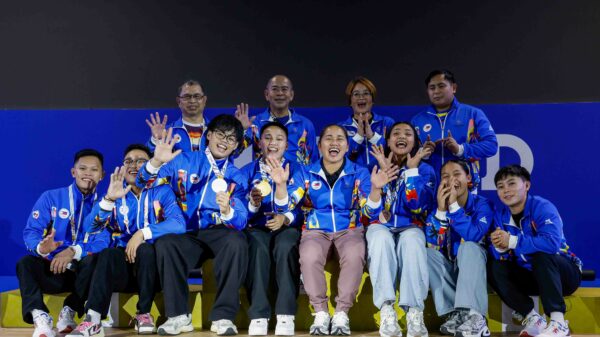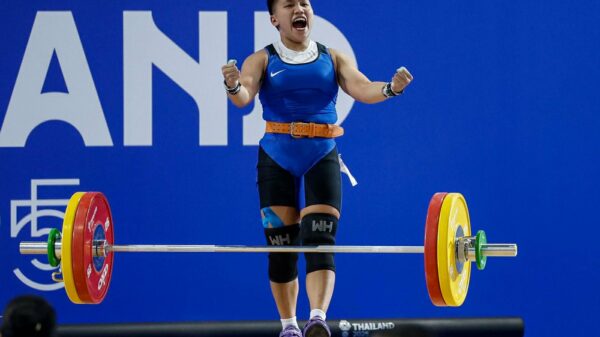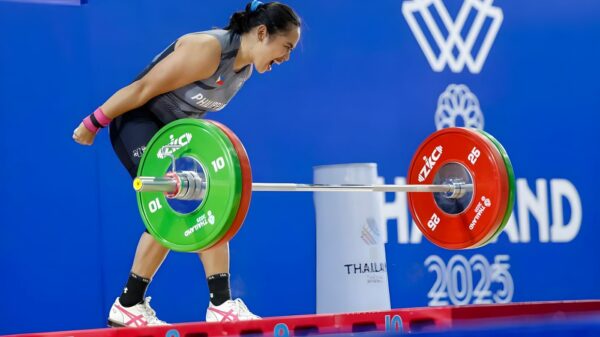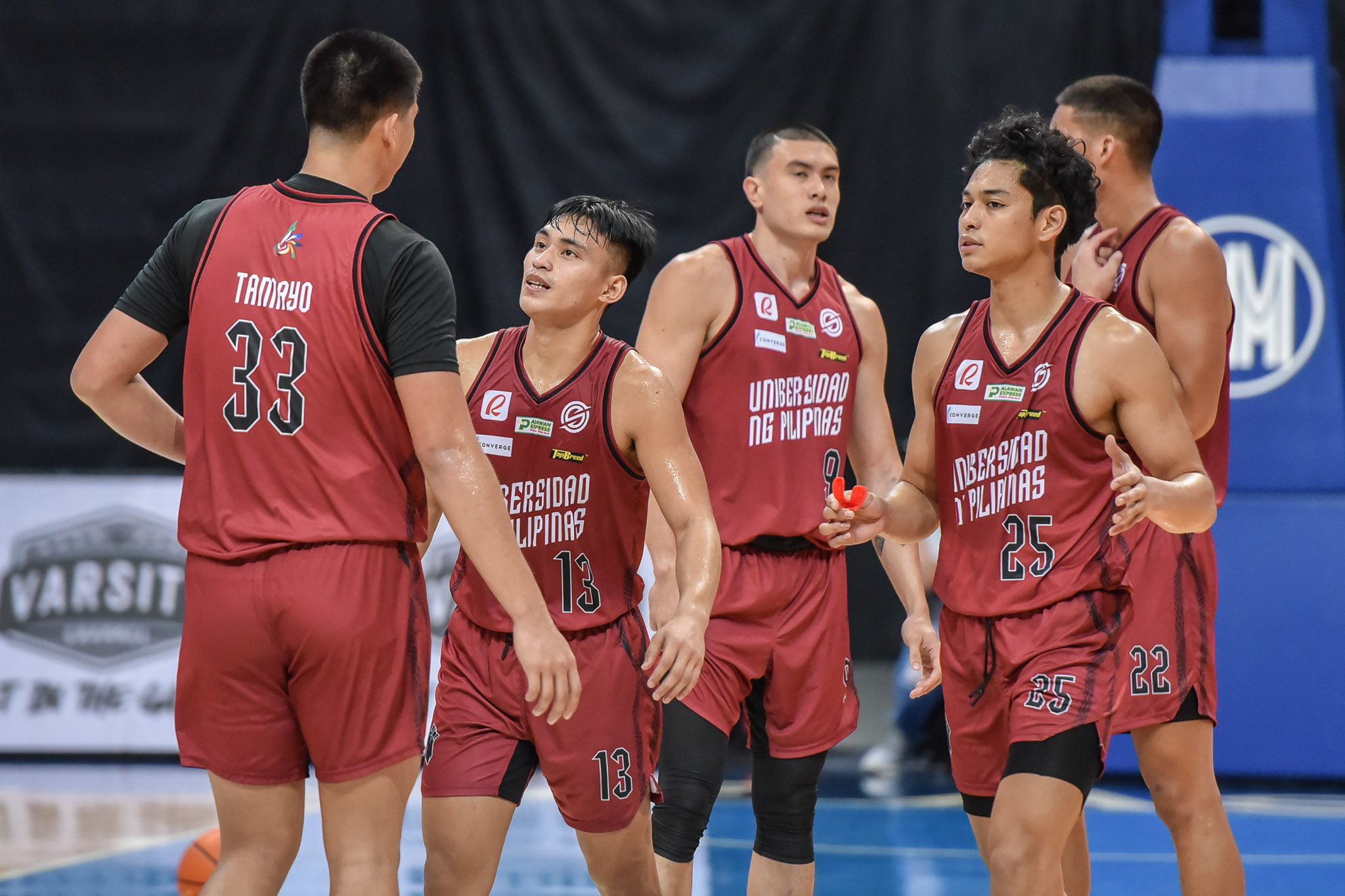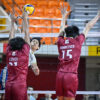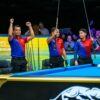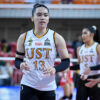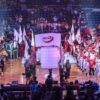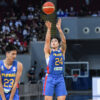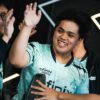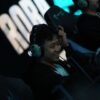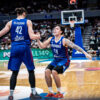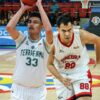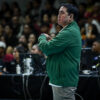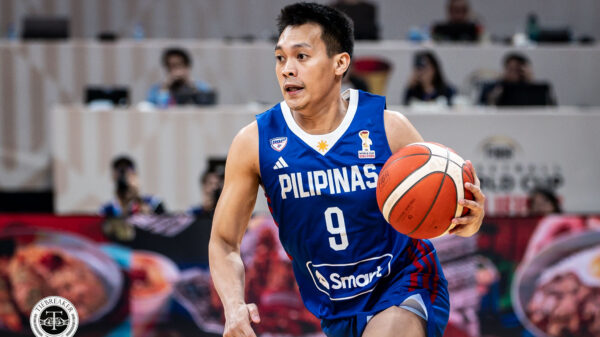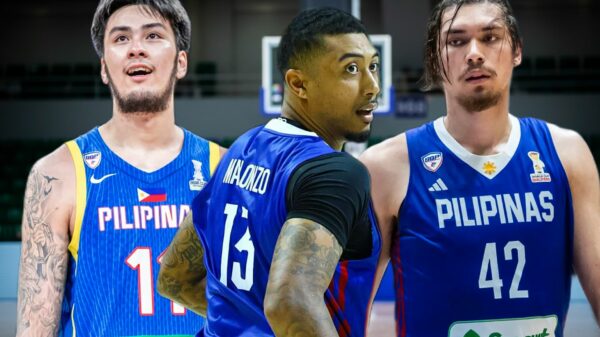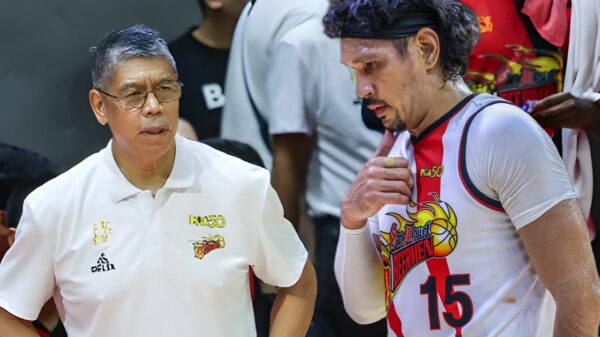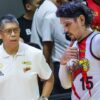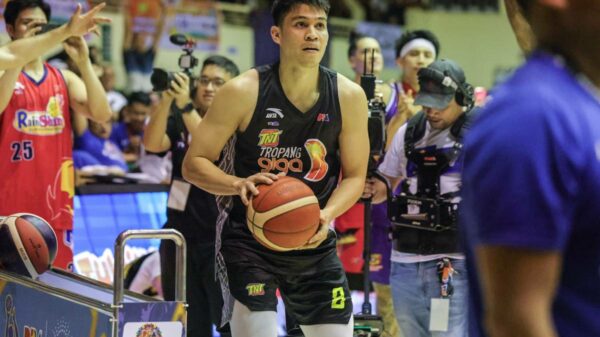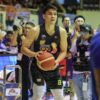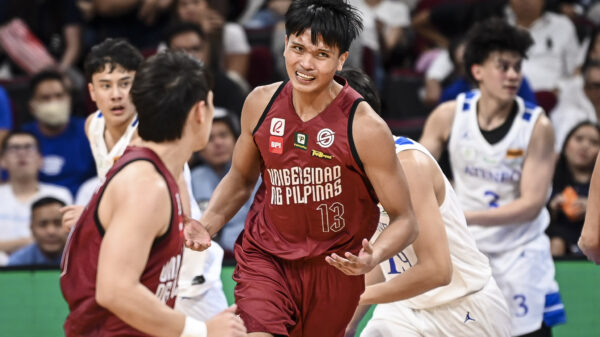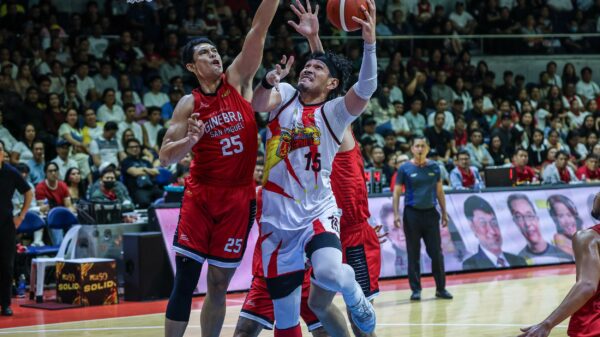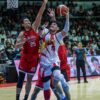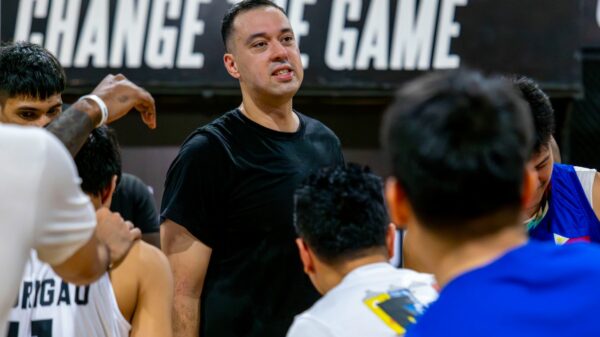The elimination round of UAAP Season 84 is set to end with a bang, as the league’s top two teams – the Ateneo Blue Eagles and the UP Fighting Maroons – face each in a potential preview of the finals.
Ateneo comes into the match with a 39-game win streak dating back to Season 81. Meanwhile, UP is coming off of a dominant 96-67 victory over the UST Growling Tigers, having already earned their third consecutive trip to the Final Four.
For this, we’ll look at how the two teams stack up against each other and look at a few fun things we’ve picked up from watching both Ateneo and UP throughout the year. In this article, you’ll be able to read the version looking at the Blue Eagles.
The Stats
On paper, this is a matchup between the two best teams in the league.
Ateneo holds the distinction of being the best offense in the league with a 109.0 offensive rating and the best defense in the league with an 84.4 defensive rating. It has peppered opponents from deep by averaging the most threes made per game while also being the most accurate shooting team (33.3 percent). Their team’s offense is also defined by how well they move the ball. Through 13 games, the Blue Eagles averaged 20 assists per game (first in the league) with 63.6 percent of their shots being assisted. On defense, they’re similarly elite. They hold opposing defenses to just 42 percent from inside the arc (second in the league by a hair) while suffocating perimeter shooters to the tune of a league-low 24.5 percent from deep.
The kicker here is that they’re beating teams by a margin greater than they did in Season 81 and 82. In those years, Ateneo had a plus-22.0 and plus-21.8 net rating respectively (that means the team is beating teams by this much on a 100 possession basis). This season, the Blue Eagles are just absolutely wailing on teams for a net rating of plus-24.6. It honestly doesn’t feel fair sometimes.
On the other hand, the Fighting Maroons hold a 97.1 offensive rating (second) and an 88.4 defensive rating (third). Their plus-8.7 net rating is the highest of a non-Ateneo team since Ben Mbala was around for De La Salle University. On paper, they are the best team that Ateneo has faced for the duration of Ange Kouame’s college career.
UP’s offense is powered by a 64.3 assist percentage, higher than Ateneo’s mark, as coach Goldwin Monteverde has implemented a system that requires everyone to pass the ball and look for cutters. This has led to the team shooting 51.7-percent from inside the arc. The defense is very good, though not as good as their offense; they force the second-most turnovers in the UAAP and hold opponents to just 42.3 percent from the inside (second-lowest).
The Cagulangan-Lucero Connection
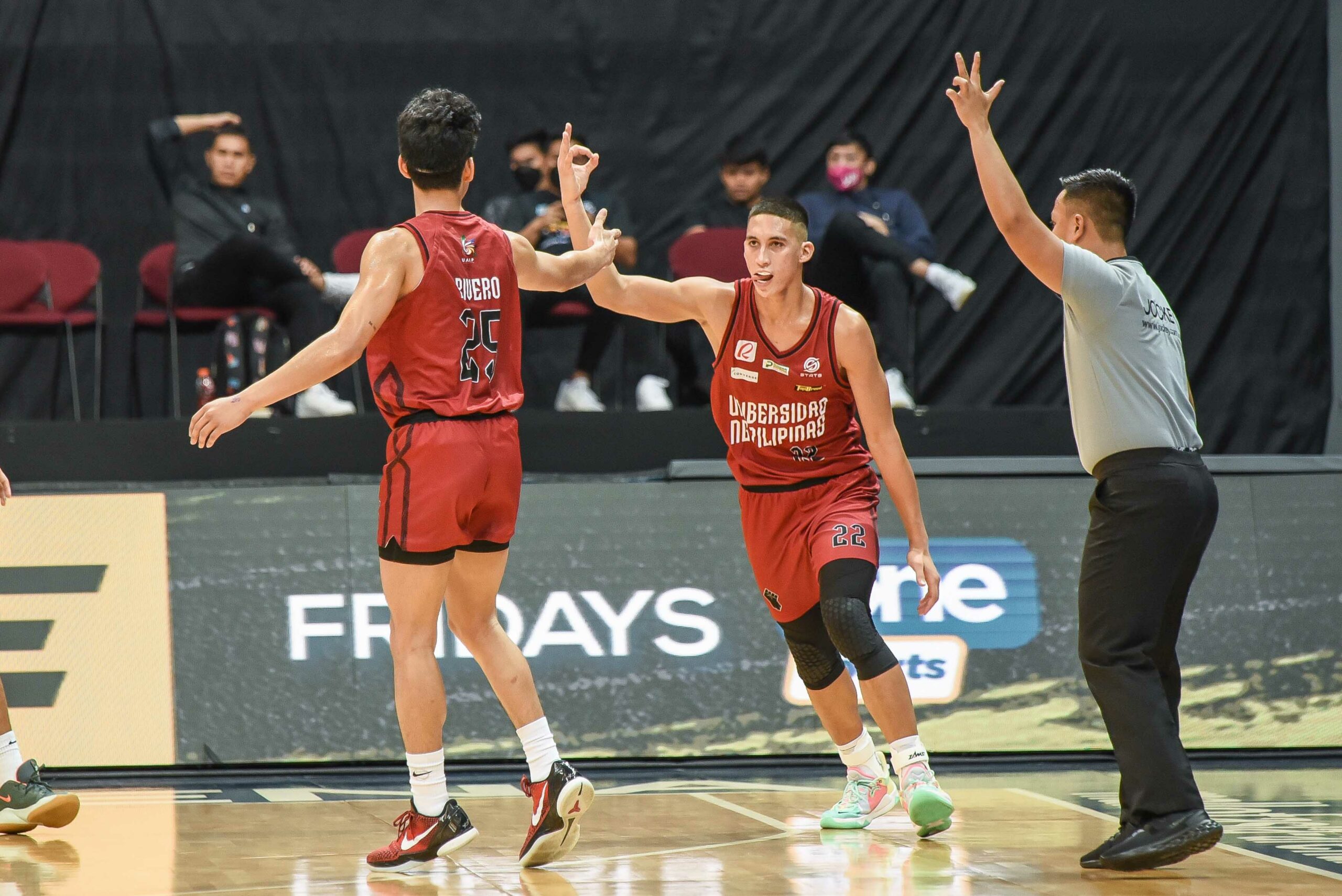 Zavier Lucero was touted as an MVP-level talent coming into the season, and he’s certainly lived up to the billing. He’s an elite player on both sides of the ball with a keen understanding of positioning, a superstar unlike any we’ve seen before in the collegiate ranks. But the thing that sets him apart is that he does the majority of his damage without the ball.
Zavier Lucero was touted as an MVP-level talent coming into the season, and he’s certainly lived up to the billing. He’s an elite player on both sides of the ball with a keen understanding of positioning, a superstar unlike any we’ve seen before in the collegiate ranks. But the thing that sets him apart is that he does the majority of his damage without the ball.
This is where JD Cagulangan comes in.
This season, Cagulangan leads the entire league in assists and has recently overtaken SJ Belangel for the title of best passer based on my computation of the passer rating stat. This pair has ignited UP’s offense, and they are a major reason why UP is the second-best offensive team in the league.
Their playstyles just work well with each other. In fact, 34.9 percent of Cagulangan’s assists go to Lucero. In turn, Cagulangan’s passing has helped Lucero become the most efficient volume scorer in the league. Lucero gets his points from transition, cuts, and as a roll man, where he scores 1.38 PPP (points per possession), 1.46 PPP, and 1.33 PPP, respectively. These are marks that far eclipse the league average (0.91, 0.97, and 0.74 respectively). Lucero is able to be this efficient because of his great touch around the rim and because of Cagulangan’s ability to find him with pinpoint accuracy.
In transition, Cagulangan is able to approach the rim with his speed and ability to handle the ball. He draws the defense’s attention and all that’s left for Lucero to do is to finish:
There is a ton of synergy between the two of them on the court. Cagulangan can collapse defenses by penetrating inside and can get nearly anywhere on the floor because he has a tight handle on the ball and because he can accelerate quickly. Meanwhile, Lucero has a great sense of knowing when to cut. In this play, he knows his man isn’t paying attention as Cagulangan attracts defensive attention. He proceeds to cut inside and Cagulangan places the pass well. To finish, he extends his incredibly long arms for a layup. He’s shooting 65.4 percent from inside, and his length and soft touch are the reasons why.
This is the quintessential Cagulangan-Lucero stretch. In the first possession, Cagulangan collapses the defense by getting two feet in the paint. Lucero takes advantage of the confusion by cutting inside and getting the pass. Lucero then finishes with a tough extension. On defense, Cagulangan (ninth in steal percentage) takes the ball away and Lucero immediately runs to the opposite end. Cagulangan’s ability to throw these outlets (and the fact that he’s always actively looking for them) mixes nicely with Lucero’s ability to run the floor and finish in the open court:
The chemistry between the two extends to the pick and roll. La Salle hedges (as in, Mike Phillips “bumps” Cagulangan) and they are forced to switch as Lucero prevents Evan Nelle from recovering. Nelle stands frozen in the play while Kurt Lojera, who was looking at CJ Cansino, fails to tag Lucero. Cagulangan makes a jump pass to send the ball over Phillips (who is nearly a foot taller) and it’s a really easy finish for Lucero. The two make for a dynamic duo whose strengths combine to make the other better:
Carl Tamayo: One of One
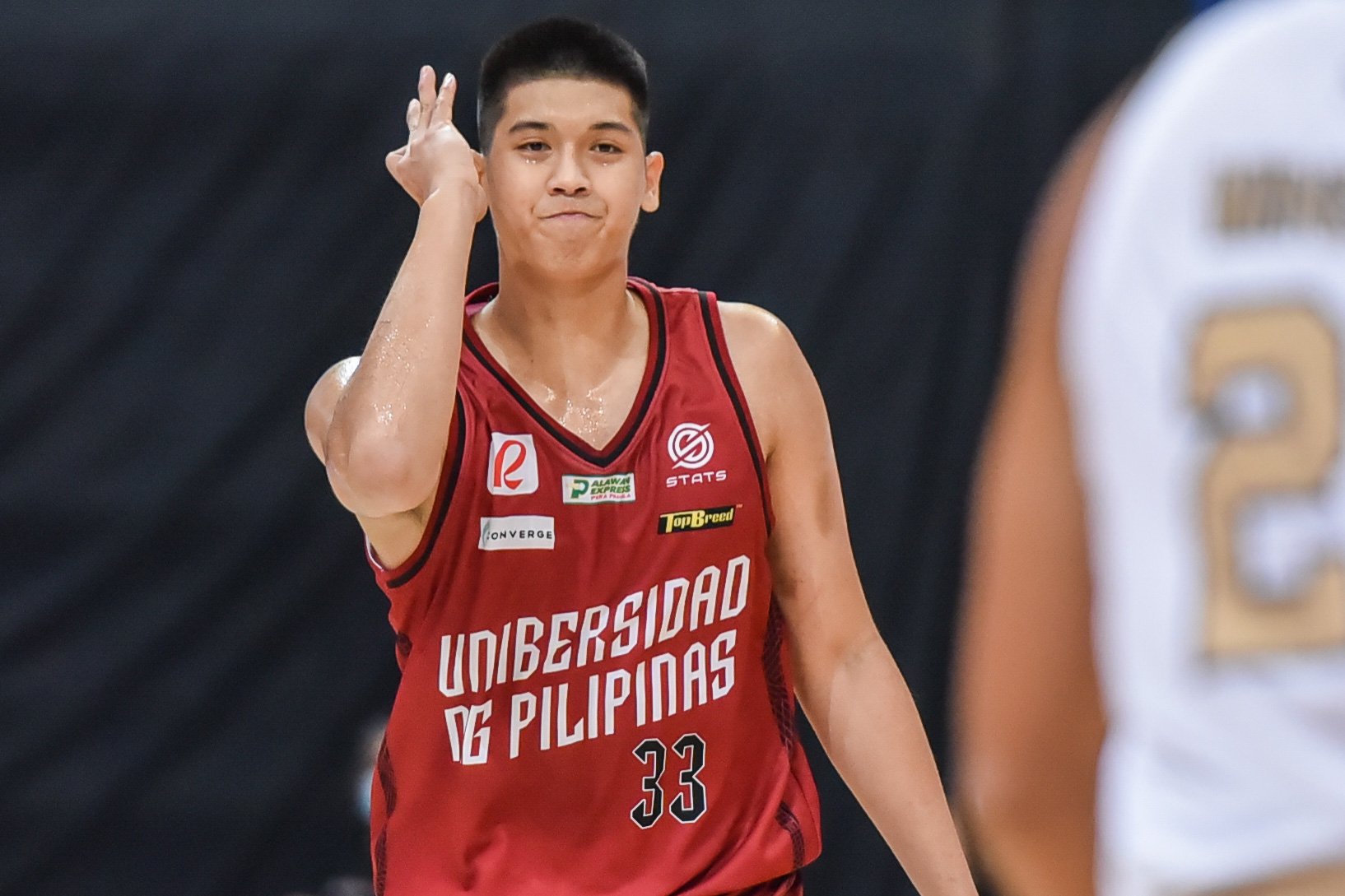 Carl Tamayo is a singular talent in the country. There is no one else, in the UAAP or otherwise, that has the intersection of size and skill that he possesses. He’s bigger than the typical highly skilled “bigs”, and he’s more skilled than guys his size. He’s a legitimate modern four who can shoot and post-up. This season, he’s arguably been UP’s second-best player after Lucero and at times looked like he should be a member of the Mythical Five.
Carl Tamayo is a singular talent in the country. There is no one else, in the UAAP or otherwise, that has the intersection of size and skill that he possesses. He’s bigger than the typical highly skilled “bigs”, and he’s more skilled than guys his size. He’s a legitimate modern four who can shoot and post-up. This season, he’s arguably been UP’s second-best player after Lucero and at times looked like he should be a member of the Mythical Five.
In single coverage, you can pretty much pencil him in for two points. He’s either bigger, faster, or stronger (or some combination of the three) than whoever is guarding him. That isn’t a great recipe for success if you’re the defender. He’s able to punish teams with brute force or finish with a nice soft touch, as seen in this short jumper against Ben Phillips. His footwork and touch combined with his size and strength just make it impossible for any single player to consistently stop him (well, there’s the one guy in blue, but still):
In addition to his size and skill inside, he’s also the best shooter on the team. Among players who shot more than 10 triples, Tamayo is the only one on the team to shoot above 30 percent, and he’s also second in makes averaging 1.4 per game. According to InStat, he’s shot 12-for-27 (44.4 percent) on his catch and shoot threes”
What’s truly intriguing about Tamayo this season is that he’s been slowly improving as a passer. In high school and in FIBA youth competitions, Tamayo had a gunner rating (a measurement of how often a player gets an assist compared to how often he looks to score) above 14 in every tournament (Prime Carmelo Anthony was just a 7.4 for comparison). Basically, he was a ‘shoot first, shoot last’ type of player. When he passed, it was usually an option of last resort. This season, he ranks 20th among 76 qualified players in the stat (he’s at 8.9). Still high, but not unconscionably so. Instead of only passing in case of emergency, he’s been actively surveying the floor before the double team comes.
Here, he catches the ball in the post against single coverage. Instead of single-mindedly going on the attack, he surveys the floor. Lucero times his cut for when the defense isn’t looking, and Tamayo makes the pass which leads to freebies:
Against smaller players, Tamayo can see the floor well, and it’ll be hard not to notice cutters if he’s looking. UE’s defense is keyed in on him in this possession. When he’s in the post, all five guys have their eyes on him. His eyes, however, are looking towards empty space. Once the cutter makes his move, he sends a leading pass to the rim, and they get an easy layup:
The newfound emphasis on moving the ball has allowed him to show flashes of quick thinking. It’s unclear if this was the set play or if he just figured it out on the fly, but it’s an impressive read nonetheless. Against the UE zone, Tamayo quickly processes that Lucero is open after a rotation, and he makes the quick touch pass which leads to a foul:
The willingness to pass is going to be huge for him. He doesn’t have to pass like Nikola Jokic. Just being a willing and able passer would make it harder for teams to double him, and we’ve already seen what he can do against single coverages.
Malick Diouf: Finding His Role
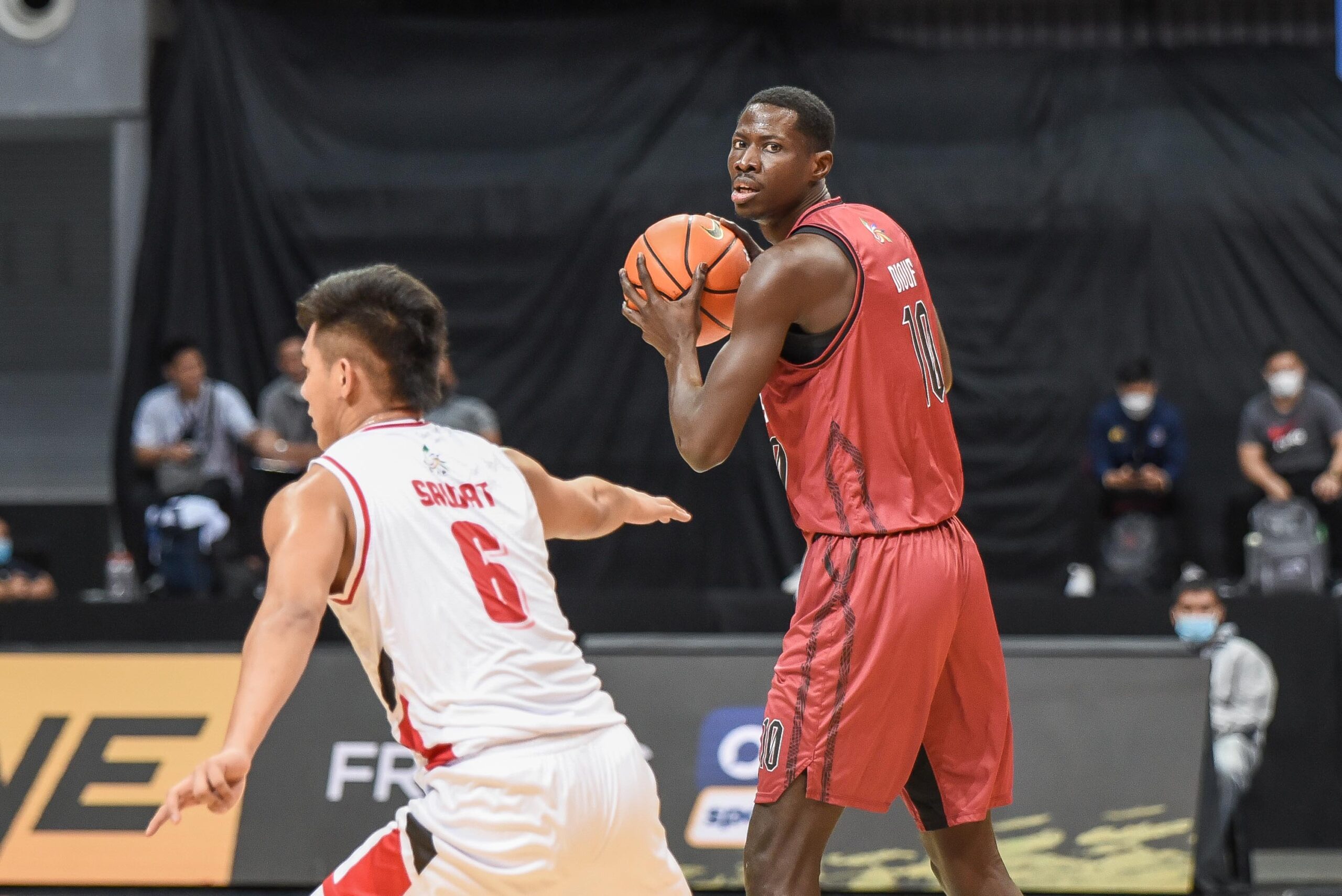 In the first round of the season, Malick Diouf sort of struggled. He wasn’t necessarily playing badly; it was more that he wasn’t playing to his strengths, as it was common to see him post-up or take a mid-range jumper. The results weren’t pretty; in the first round, Malick averaged 0.17 PPP (way below the 0.67 PPP league average) on post-ups, and he was 2/12 (16.7 percent) on two-pointers outside of the rim. Needless to say, he wasn’t playing to his strengths. His high center of gravity, thin frame, and below-average touch made his low post touches and jumpers an adventure at best, a disaster at worst:
In the first round of the season, Malick Diouf sort of struggled. He wasn’t necessarily playing badly; it was more that he wasn’t playing to his strengths, as it was common to see him post-up or take a mid-range jumper. The results weren’t pretty; in the first round, Malick averaged 0.17 PPP (way below the 0.67 PPP league average) on post-ups, and he was 2/12 (16.7 percent) on two-pointers outside of the rim. Needless to say, he wasn’t playing to his strengths. His high center of gravity, thin frame, and below-average touch made his low post touches and jumpers an adventure at best, a disaster at worst:
In the second round, his role underwent a restructuring. From scoring 8.9 points on 45.4 TS% on eight shots a game, he put up 8.0 ppg on 56.0 TS% on just 5.2 shots per game. It was a necessary shift towards getting him the shots he can consistently make and simplifying the game to lessen forced and unnecessarily difficult shots. His scoring was limited to being mostly off of cuts, putbacks, and easy transition buckets. By limiting his usage, he was able to perform much better:
In contrast to his play in the low post, Diouf in the high post provides a ton of value for the team. He’s probably the tallest player in the UAAP, and he has the length to match the height. This allows him to see over the defense and find the open man. Him flashing to the middle or playmaking from the elbows provides an effective means to break zones too. Against FEU’s zone, he flashes to the middle and makes a good pass to Lucero for a dunk:
UP’s defense improved in the second round. The team’s defensive rating went from 91.9 to 88.4, and Diouf played a huge part in that. Diouf has a wingspan that looks to be around 7’2 to 7’5. This allows him to pick off passes and force deflections that would normally elude shorter players. His 2.7 steal percentage leads all centers in the UAAP. He has good enough hand-eye coordination that his attempts to intercept the ball are more often successful than not:
But the biggest contribution he has on defense is his ability to protect the rim. Among players who’ve played more than 15 minutes per game, he leads the league in block percentage at 7.40 percent, just slightly ahead of Ange Kouame, who’s at 7.37 percent. His sheer size intimidates players and makes them not even think of trying a layup.
In this possession, he dissuades a layup that forces a pass to Emman Ojoula. He quickly flips his hips and swallows up the shot attempt. His high revving motor and physical traits make him a really high-level defensive player. He’s not perfect and often, he bites when he shouldn’t. Even so, he’s still a high impact defender at this level of play:
UP Has a Fighting Chance
If we’re being honest, nearly everything we have on record points toward Ateneo sweeping the season. Ateneo looks incredibly dominant on both ends of the floor and oftentimes, they seem out of place at this level of competition.
But we shouldn’t discredit how good UP has been. Ateneo hasn’t faced a team this good in the regular season since Ben Mbala’s La Salle. This isn’t the Fighting Maroons of Season 81 or Season 82; in Season 81, they were a high octane offense that got hot at the right time. In Season 82, they underperformed the whole year and were a net negative for the season. This iteration of UP has the best shot to take down a Kouame-led team and has shown that it is able to execute at a high level on both ends of the floor.
This team is led by the most unique star player in recent memory in Lucero who makes for a dynamic pair with Cagulangan, one of the best passers in the league. They have a generational talent at the four in Carl Tamayo, and a high defensive impact big in Malick Diouf. This isn’t even where their wealth of talent ends. They have good scorers in Ricci Rivero (who has bounced back from an awful Season 82) and transferee CJ Cansino. James Spencer has provided solid contributions on both ends of the floor, and their young talents (Terrence Fortea, Gerry Abadiano, Harold Alarcon, to name a few) have shown a ton of promise. The odds may not be in their favor, but they might just have it in them to turn the tables.
—
All UAAP games stream live on GigaPlay presented by Yamaha. Download it now on Android or IOS.

